SCHOOL LEAVER GUIDE
A
CENTRE OF ACADEMIC EXCELLENCE
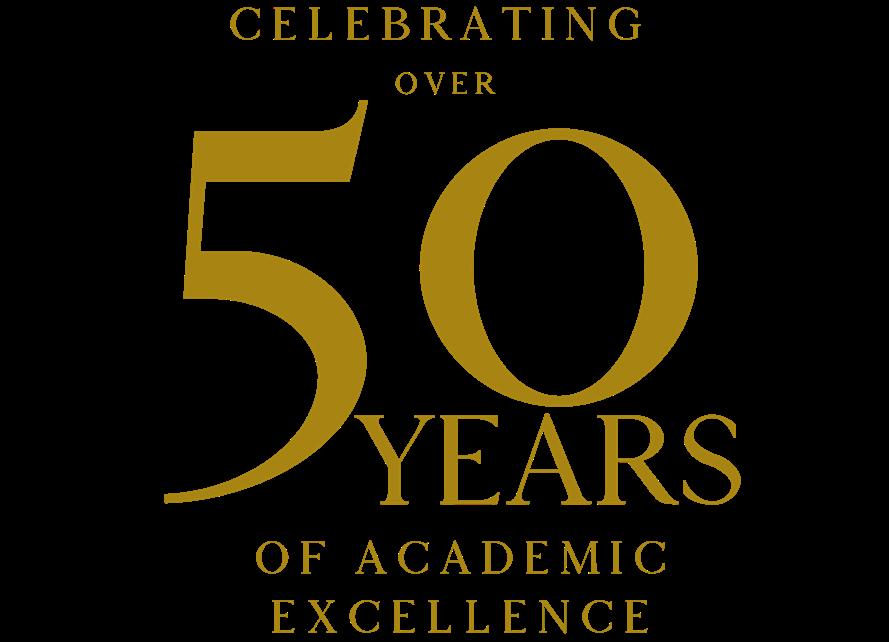
Student
Travel
19-23 Courses
Application
Adult Courses
Apprenticeships
Higher

A

Student
Travel
19-23 Courses
Application
Adult Courses
Apprenticeships
Higher
Celebrating over 50 years of academic success, Pendleton Sixth Form College has a long-standing reputation for excellence. We pride ourselves on exceeding expectations in everything we do, from teaching and learning, to enrichment and the high aspirations we instil in our students. Our traditions have been maintained in the vibrant Sixth Form College you see today.
As the Principal of Pendleton Sixth Form College, I am committed to continuing that tradition of excellence and high standards, so that everyone can achieve their full potential. Our students are at the heart of everything we do. Our simple ambition is that you are happy and fulfilled, whilst achieving your aspirations during your valuable time with us.
Our impressive curriculum includes the nationally acclaimed Pendleton School of Theatre, which boasts an exceptional track record for progression. The majority of our students go on to study at the country’s leading dance and drama schools and many have gone on to star in West End productions, Hollywood films and awardwinning television dramas.
Further to this, the College has unique partnerships with both the UK Space Agency, and the National Aeronautics and Space Administration (NASA) Which secure extraordinary opportunities for students within our Centre of Excellence for STEM (Science, Technology, Engineering, and Mathematics).
Our School of Creative Arts and Design is renowned for the high standard of work produced by students, which is regularly exhibited in art galleries across the region. Recent substantial investment has seen the creation of a modern design studio, 3D workshops and a state-of-theart photography laboratory.
We pride ourselves on our success in ensuring students have the opportunities and resources they need to excel academically across all our A-level subjects and our vocational courses. The successes of our students over the last half-century have led to the College being recognised, both locally and nationally, as a centre of educational excellence for A-levels, science, performing and creative arts.
We are extremely proud of the achievements of our students and we look forward to welcoming you to Pendleton Sixth Form College in September.

Victoria Kielty CENTRE PRINCIPAL
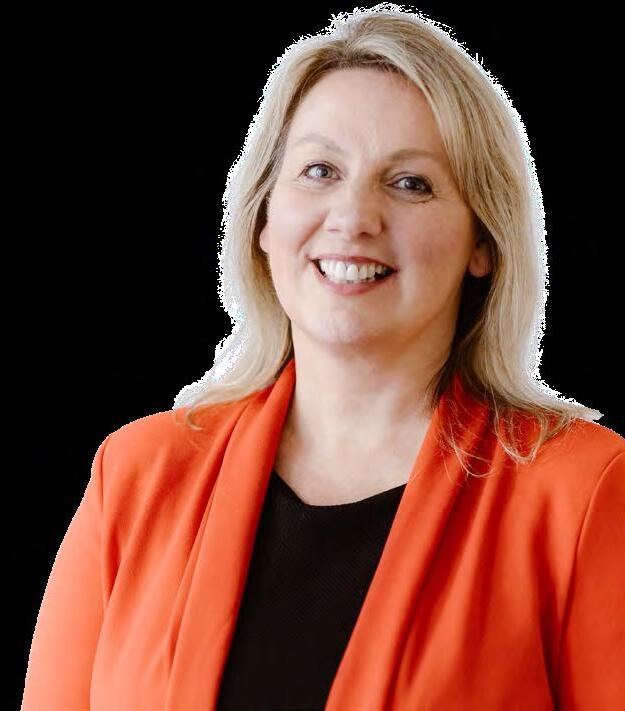

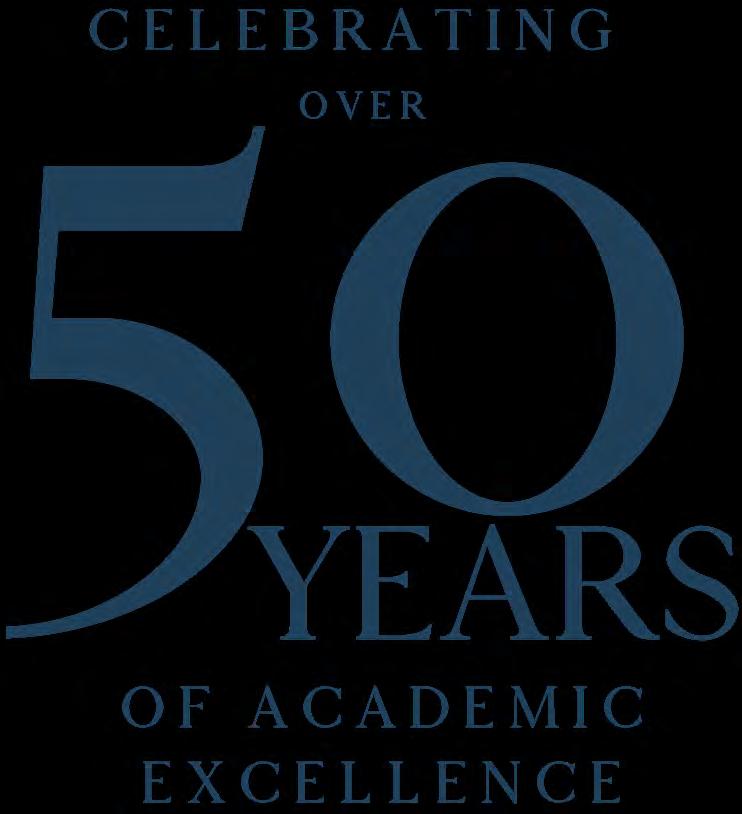
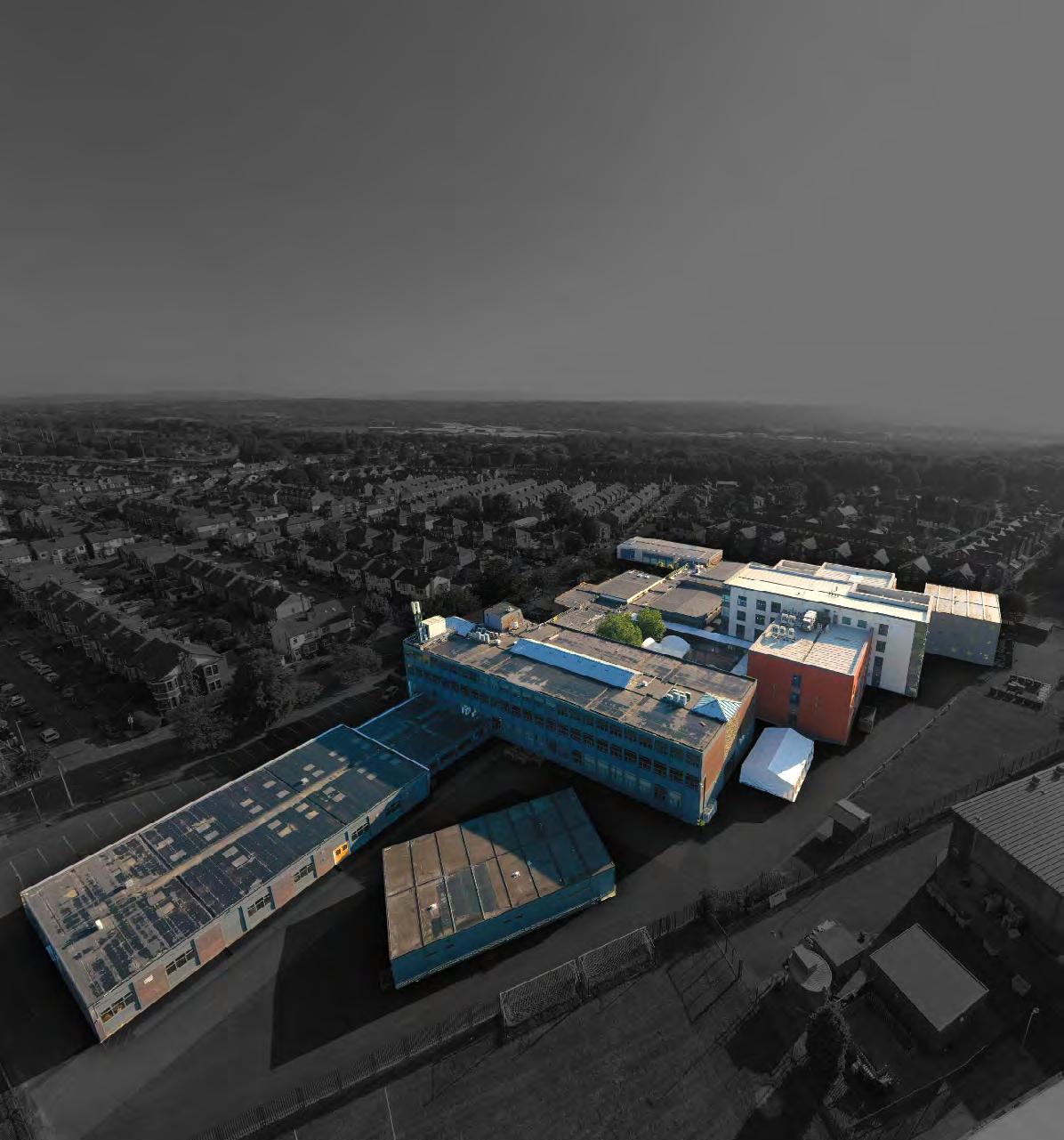
At Pendleton Sixth Form College, we offer our students an exceptional learning experience in state-of-the-art facilities. Whether you’re exploring creativity in our modern design suites or performing on stage in one of our two industrystandard theatres, you’ll have access to the best resources to hone your skills and achieve your potential.
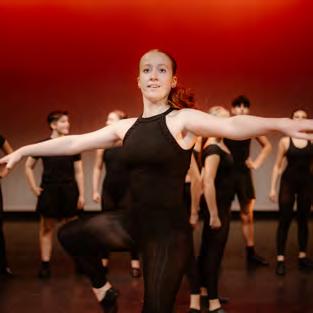
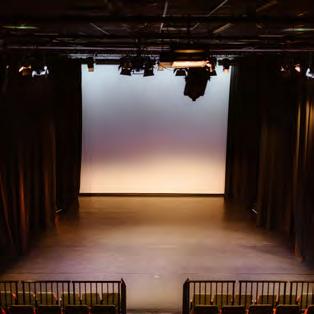
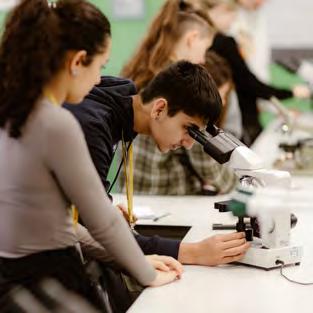
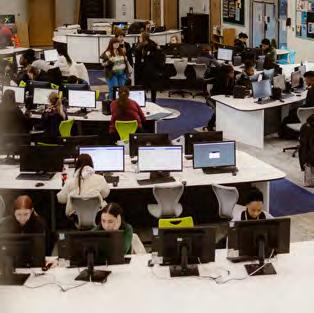
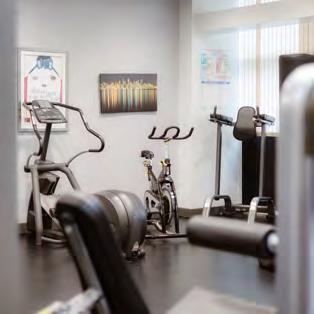
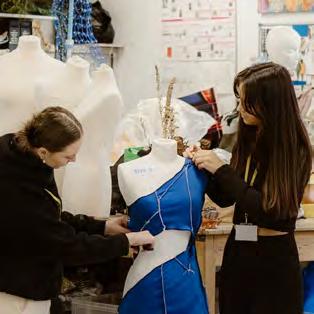
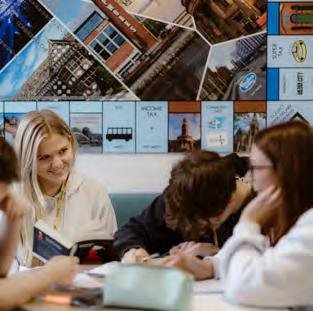

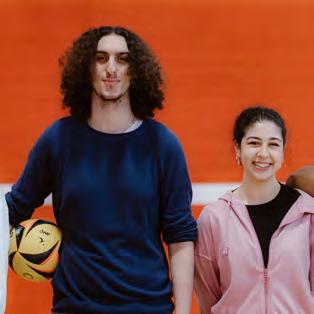

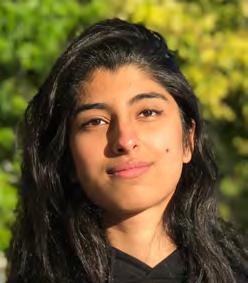

Studied: Applied Psychology Single Vocational A-level
Former School: Wellacre High School
Winner of the BTEC Silver Award – BTEC Social Sciences Student of the Year
“I chose to study at Pendleton Sixth Form College, as from an early age I have been intrigued by the human mind and how it works. Therefore, the BTEC Psychology course was perfect for me. I chose to study a BTEC because it is equivalent to an A-level, but has more of a focus on coursework, which suits my learning style best.
I have enjoyed the variety the BTEC qualification has provided and I feel I have had a sample of different fields of this subject; preparing me for University where I plan to study Psychology.Winning the BTEC Silver Award for Social Sciences Student of the Year, I could not be happier. I would like to extend a huge thank you to my tutors, who are extremely helpful and supportive.”
Studied: Biology
Winner of the BTEC Gold Award – Science Student of the Year and Overall BTEC Young Learner of the Year
“I feel privileged to receive this award. There must be countless students who have worked as hard as me and I would be honoured to share this moment with them. It feels incredible to be recognised for the hard work you do. I did not have any qualifications when I came to this country. I still remember the disappointment I felt when my applications were refused by colleges because I did not have any GCSEs. But Pendleton Sixth Form College put their trust in me by giving me a place in the BTEC course and allowing me the opportunity to prove myself. I vowed to myself that I would use every minute of the next two years to prove to my teachers and to myself that the trust was not misplaced!”
Studied: Technical Theatre
Former School: The Heyes School
Winner of the BTEC Bronze Award – Performing Arts Student of the Year
“Studying at The Pendleton School of Theatre, I have had the opportunity to pursue a number of enrichment programmes, which have really engaged my interest in Technical Theatre. This is why I will be continuing my studies at university, in Set Design or Scene Construction.
Being nominated and winning the BTEC Bronze Award for Performing Arts Student of the Year, is an amazing accomplishment. It feels great to be recognised for the effort and hard work I have put in this year, but also reflects on the unyielding support of my tutors.”
“Choosing Pendleton Sixth Form College was one of the best decisions of my life and has allowed me to mature and grow as a person as well as achieving things which I’ve dreamt of since I was small.”
Amanda Green-Salinas
Amanda received four A*s and is now studying a Master of Physics at Oxford University.
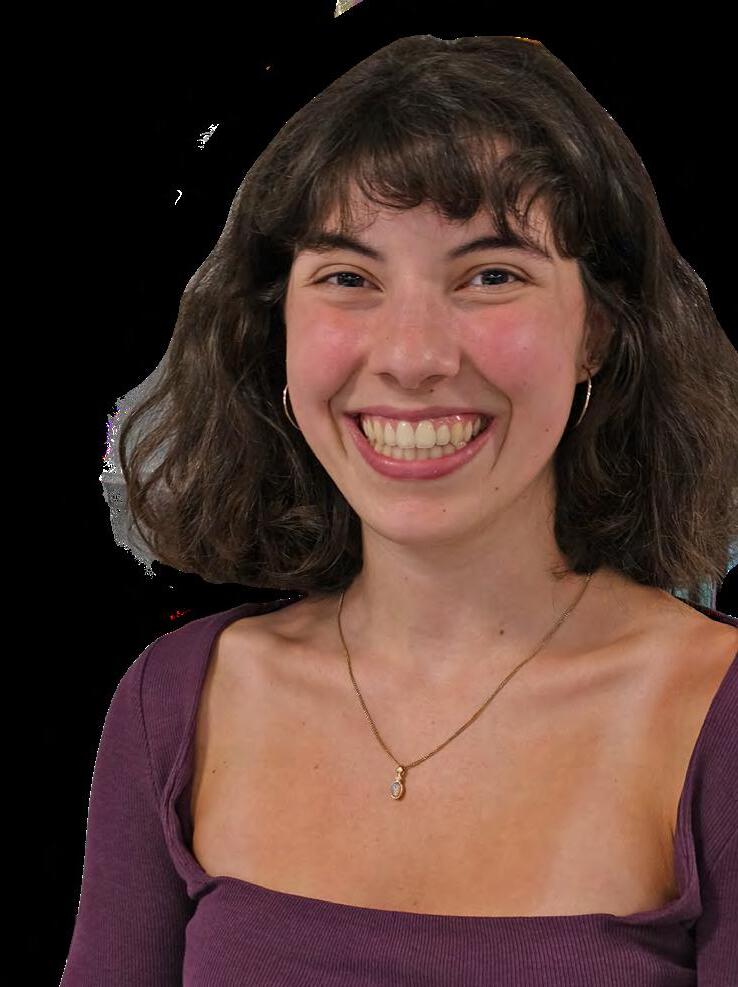
Students will have the option to decide between studying A-levels, Single Vocational A-levels, or Triple Vocational A-levels.
A-level courses are for students who would like to embark on rigorous academic study, in preparation for prestigious universities. These well established qualifications will hone your analytic and debating skills, written communication skills and your in-depth knowledge of the subjects they choose, laying foundations for your future professional careers.
Students have the opportunity to choose three or four A-level subjects. It is important you choose carefully, by researching the degree that you would like to study at university and using this to inform your decisions when selecting your subjects. If you are unsure about your next steps after college, Russell Group universities advise selecting facilitating subjects, which will keep a wide range of degree options open to you.
Facilitating subjects at Pendleton Sixth Form College include Biology, Chemistry, Physics, English Literature, English Language, Geography, History, Mathematics and Further Mathematics and Modern Languages.
Single Vocational A-levels offer the academic rigour of traditional A-levels, coupled with the practical elements of Triple Vocational A-levels.
Students can select a combination of courses that suit their needs and aspirations. These can include other Single Vocational A-levels or traditional A-levels.
A Single Vocational A-level is equivalent to a traditional A-level. However, assessment is more practical and mostly comprises of coursework, similar to Triple Vocational A-levels.
Students who are better suited to practical assessments and learning can choose from the following Single Vocational A-levels:
• Applied Human Biology
• Applied Science
• Business
• Criminology
• Engineering
However, students can choose traditional A-levels alongside the above.
• Health and Social Care
• Sport
Triple Vocational A-levels are designed to give students more practical learning experiences focused on a specific industry.They develop a student’s employability skills, by combining practical work and study; preparing them for a career in the subject they choose. These types of courses can also help students decide if a particular employment sector is right for them.
Triple Vocational A-levels have been validated by employers and universities as approved pathways, leading jobs and progression opportunities, making them as valid as, and comparable to, academic qualifications.
After studying Triple Vocational A-levels, students can choose to go straight into employment or an apprenticeship. However, the majority choose to progress to Higher Education, as vocational grades hold the same UCAS points as A-level grades. The main difference between these courses and traditional A-levels is that they are assessed mostly through coursework and practical modules.
At Pendleton Sixth Form College Students will forge a path through their educational journey with their academic choice, whether it’s A-levels, Single Vocational A-levels, or Triple Vocational A-levels our students have gone on to be the best they can be. Our Pendleton students are nurtured throughout their time at college. We provide them with the skills, support and experiences needed for entry to universities across the country as well as many other career and education pathway.

Chemistry A* | Maths A* | Further Maths A* | Physics A*
Destination: Oxford UniversityChemistry
“I really enjoyed my time at Pendleton Sixth Form College .The teachers were always helpful and supported me to achieve the grades that I needed for university..”

Chemistry A* | Maths A* | Physics A*
Destination: University of Manchester - Law
“The best thing about studying at Pendleton Sixth Form College is the amazing staff. They are incredibly caring and supportive and ultimately want the best for you.”
We have a wide range of activities on offer, to suit the needs of our students.
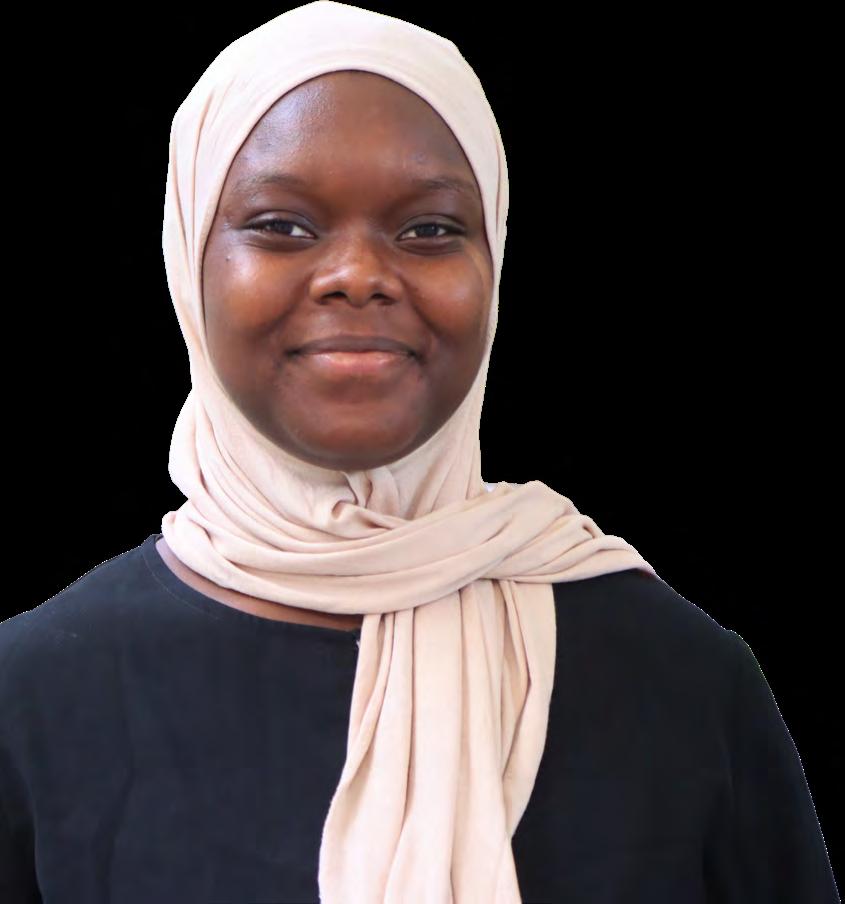
“Studying at Pendleton has been amazing, the teachers were really helpful and supportive. The College was more than I could have hoped for.”
Our LGBTQ+ Group provides an avenue for students, whether LGBTQ+ or not, to meet up on a regular basis. This group links with the local authority to raise awareness across our college.
Pendleton Sixth Form College offers excellent study spaces for students seeking a quiet environment to focus on their coursework. Our state-ofthe-art Digital Learning Zone (DLZ) is available to all students during break times and study days.
For those who prefer complete silence, the Silent Study Hall (SSH) is also freely accessible.
Pendleton Sixth Form College offers students who’re studying performing arts the opportunity to learn and perform in one of our two industry standard theatres: The Eccleston Theatre and the Ben Kingsley Theatre.
Pendleton Sixth Form College students have access to a fully equipped gym to use at their leisure.
Any student can become an ambassador and get involved in college events such as open days, enrolment, and enrichment activities.
The College has its own Volunteer Task Force Group which is made up of environmentally conscious students who work to ensure the local community is kept clean and tidy.
Alternatively, students interested in sports can volunteer to work with Salford Community Leisure or Manchester Football Association.
The College works with a number of charities where students can volunteer and help support these worthwhile causes during their time with us.
Pendleton Sixth Form College features a 4G football pitch that is available for students to use outside of lesson times.
The Manchester United Foundation sponsors a Pendleton Sixth Form College squad, which competes each season in a league against other colleges across Greater Manchester.
For highly competitive university and career progression pathways, the College organises events, interactive workshops and activities led by industry professionals. These society events can give you the extra edge when applying for university courses.
Current activities include:
• Badminton
• Basketball
• Board Games
• Book Club
• Card Games
• Chess Club
• Choir
• Dance Keep Fit Class
• Football
• Netball
• Volleyball
• Young Enterprise
Throughout the year we also host a variety of lunchtime events and activities for you to get involved in. These have included a vegetarian BBQ, Chinese and Buddhist celebrations, Red Nose Day fund-raiser, Halloween celebration, and Children in Need activities. These events are a chance for you to unwind have fun with your friends and raise money for charity.
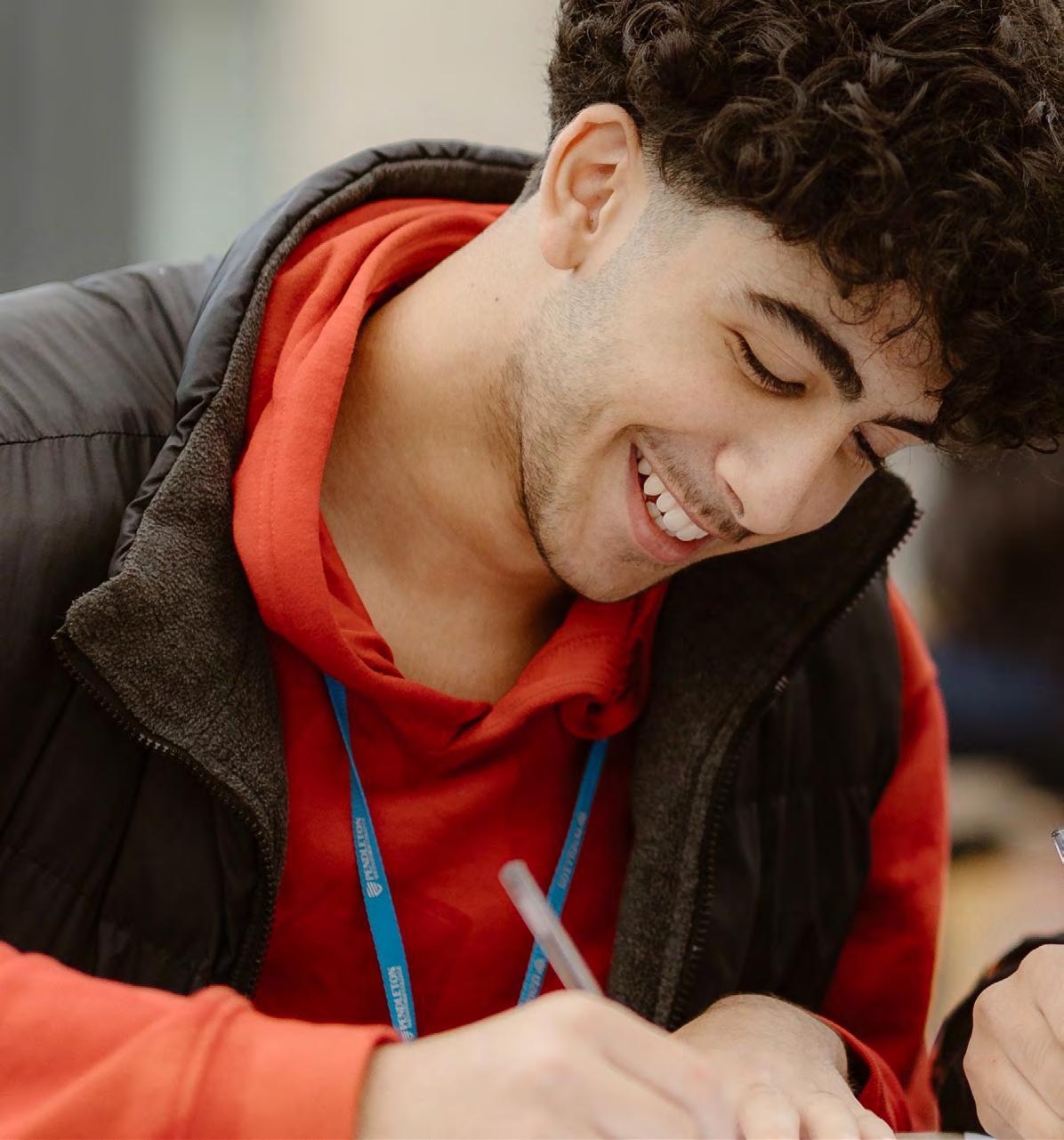
Prepare yourself for a successful career in the world of business and economics. Our courses offer you the opportunity to study a wide range of course units across accounting, economics, business analysis, innovation, strategy and political economy.
Our students have direct contact with industry professionals, enabling them to develop the key skills needed in a modern corporation - our aim is to ensure you gain the knowledge and experience you need to take your next steps either into employment, further study or an apprenticeship.
Did you know Amazon accounts for 43% of all online sales, or that the price of a Freddo has risen by 200%? Interested in how Brexit affects the market? That’s business.
Business drives the headlines—whether it’s inflation, the economy, or e-commerce. Want to gain the skills to succeed in any industry? This course covers everything from starting a business and managing its finances, marketing, and people, to planning for growth and global expansion. It prepares you for careers in multi-national corporations and offers pathways to higher-level study in specialized areas of business.
Outline
The two-year course will consist of three exams. Paper 1 will assess marketing, people and the global business. Paper 2 will focus on business activity, decision making and strategy. Paper 3 will examine overall knowledge locally, nationally and globally.
Entry Requirements
Students will need a minimum of six grade 5’s or above, including English Language and Mathematics.
Ever wondered why large corporations such as Google make more in revenue than some countries? Did you know that the 2018 sugar tax will generate around £520 million per year and will fund sport in primary schools? Ever questioned the benefits of the European Single Market and the implications of Brexit?What to produce? How to produce? For whom to produce? These are the three main questions for all budding economists. Students will learn to think abstractly, develop a good head for figures and gain a better understanding of the financial market, the global economy and economic efficiency.
Outline
Assessment for the first year of the two-year course is split into two papers, the operation of markets and market failure and the national economy in a global context. The second year comprises of three papers which cover markets and market failure, national and international economy and economic principles and issues.
Entry Requirements
Students will need a minimum of six grade 5’s or above, including English Language, English Literature and Mathematics.
Our Computing and ICT Department is a part of our award-winning Centre of Excellence for Science, Technology, Engineering and Maths. The department is renowned for its industry links, state-of-the-art equipment and extracurricular trips and visits. Our qualifications are designed to prepare students for the innovative computing industry. We pride ourselves on the outstanding success of former students who have go on to excel in the sector.
Computers are integral to all aspects of business, industry, government and education. In an increasingly technological age, a study of computer science, and particularly how computers are used to solve a variety of problems, is not only valuable to everyday people but also essential to the future well-being of the country. If this sounds exciting to you perhaps ICT is the subject to choose. The course gives a general grounding in computing, including an understanding of computer systems, the principles of programming, writing, testing and debugging of programs and the design of algorithms. With a strong emphasis on maths, we focus on the rules of language at a fundamental level and develop an understanding of the management and organisation of computer systems. Students will learn to appreciate the impact of technology on society as a whole. Computer science is a subject which is valued by universities and employers and provides students with skills that are very much in demand.
Outline
The exam board is OCR and examinations are taken at the end of the twoyear course. There are three aspects to the assessment of this course and students will be tested on their knowledge of computer systems, algorithms and programming. Students will be also be given the opportunity to complete a nonexam programming project.
Entry Requirements
Students will need a minimum of six grade 5’s or above, including English Language and Mathematics. Additionally, students must have a grade 6 in GCSE (or equivalent) Mathematics. A grade 5 in GCSE Computer Science is preferable.
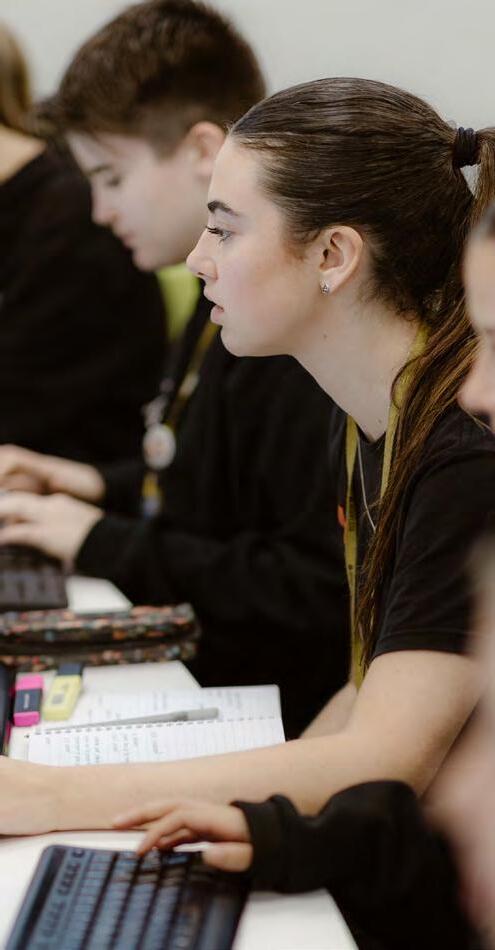
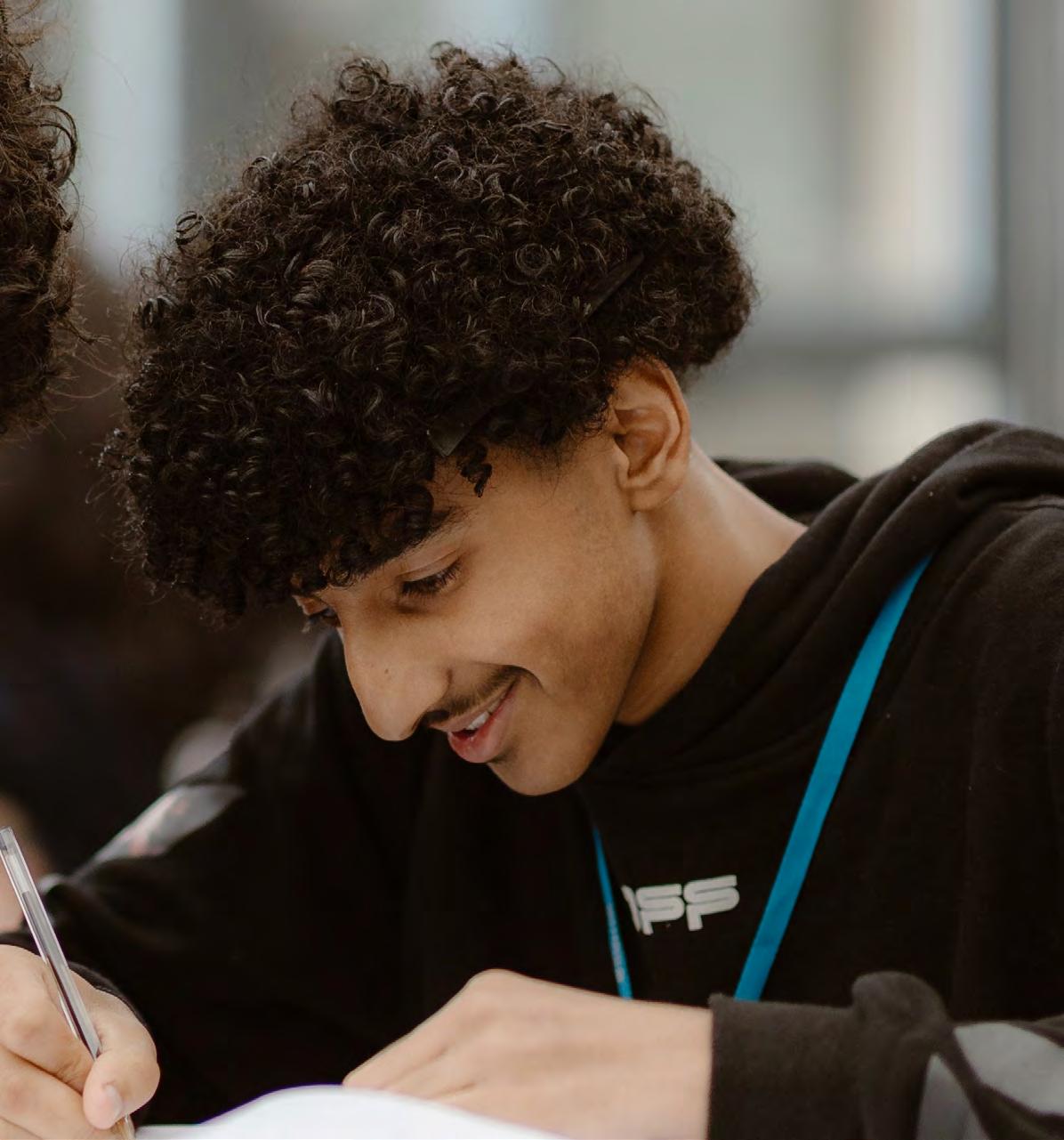
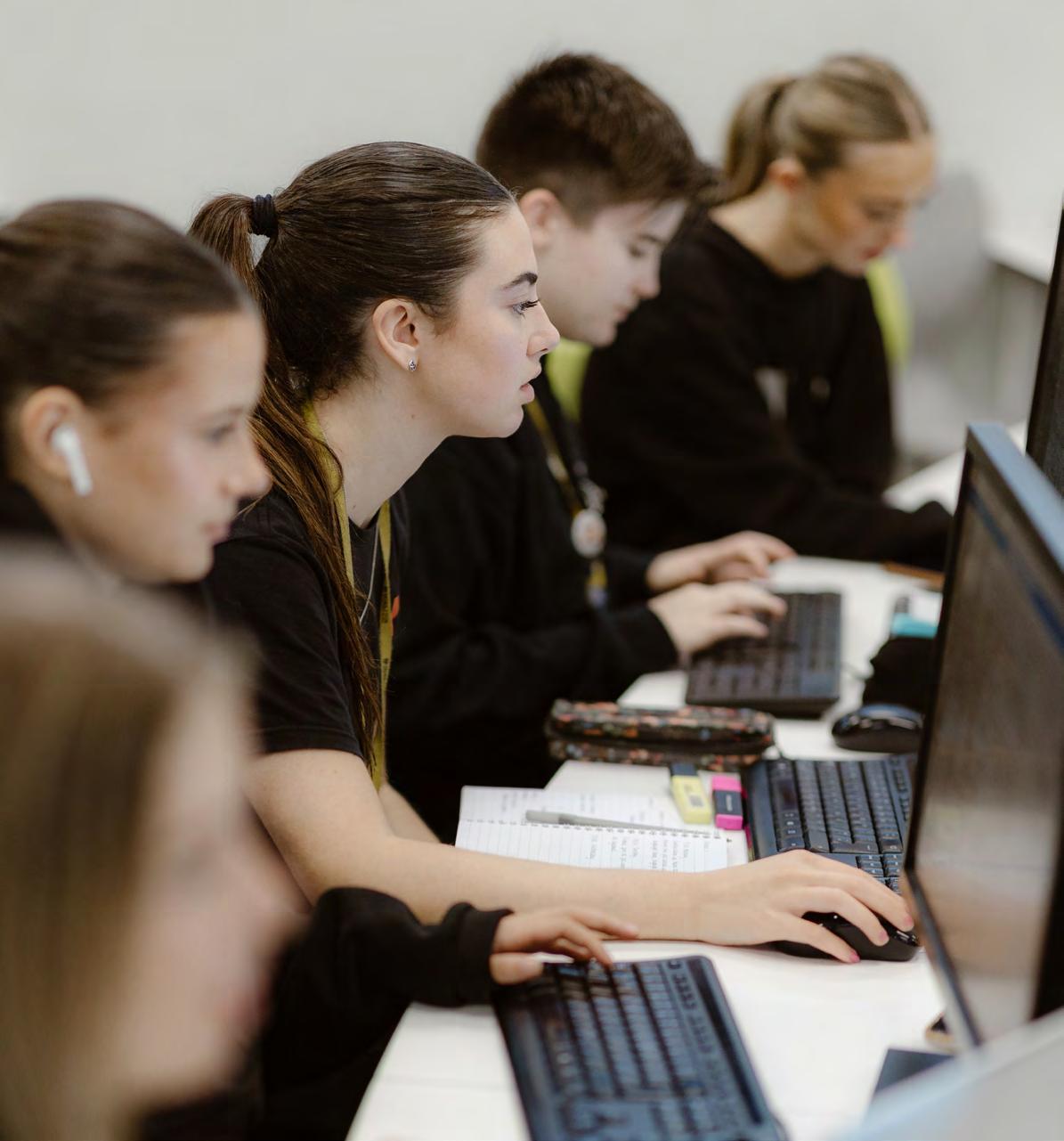
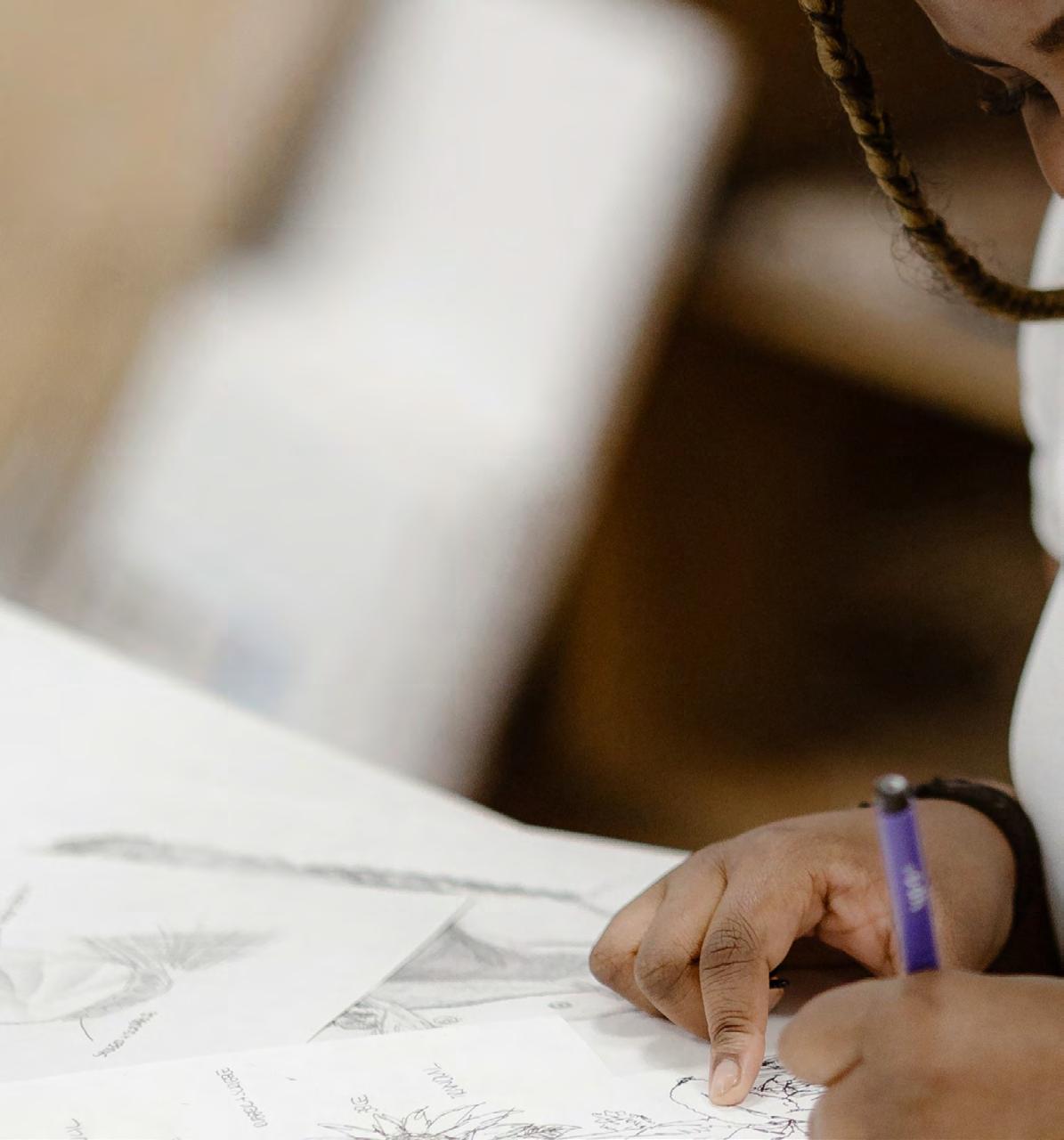
The School of Creative Arts and Design at Pendleton Sixth Form College has a rich history of educating future artists and designers in preparation for a career in the creative industries. Our reputation for excellent progression and employability opportunities is reflected in our extensive list of alumni working across the creative sector. Students have access to a range of specialist art rooms, 3D workshops, printmaking facilities, computer suites, industry and domestic sewing machines and dedicated base rooms and gallery spaces to allow development and the chance to exhibit work throughout the year.
Studying A-level Fine Art is both challenging and rewarding. Whether aiming for a degree in art and design or broadening your A-level programme, it develops valuable subject-specific and transferable skills. With over 300 creative subjects available at degree level, following this pathway can lead to diverse career opportunities. Every year, Pendleton Sixth Form students gain places at top creative universities like Glasgow School of Art, Central St Martins, and London College of Fashion.
Outline
The course covers a wide range of creative disciplines, including textiles, painting, drawing, sculpture, ceramics, and printmaking. Students are encouraged to experiment, be ambitious, and develop their creativity. It’s a practical course supported by contextual studies, split into two parts: Personal Investigation (60% of the grade), where students create a personalized portfolio, and an Externally Set Assignment (40%), based on a set theme.The first year focuses on skill-building through teacher-set projects, while the second year hones each student’s personal creative journey. All work is externally moderated to maintain national standards.
Entry Requirements
Students will need a minimum of six grade 5’s or above, including English Language and Mathematics. In addition, students must have a GCSE (or equivalent) in a creative subject area such as Art, Textiles, or Creative Media.
Studying a creative A-level, like Graphic Communication, is both challenging and rewarding. Whether aiming for a degree in art and design or simply expanding your A-level programme, it develops both subject-specific and transferable skills. Graphic design plays a key role in how companies connect with audiences, through visual communication, packaging, advertising, and digital content. This A-level opens doors to careers in print and web design, television, advertising, animation, and illustration.
Outline
The course explores typography, illustration, printmaking, logo design, packaging, and animation, using both digital tools (Adobe Photoshop, InDesign, Illustrator) and hand-rendered techniques. It emphasizes experimentation, creativity, and contextual learning, split into two elements: Personal Investigation (60% of the grade) and an Externally Set Assignment (40%). The first year builds skills through teacher-set briefs, while the second focuses on personal creative development.
Entry Requirements
Students will need a minimum of six grade 5’s or above, including English Language and Mathematics. In addition, students must have a GCSE (or equivalent) in a creative subject area such as Art, Textiles, or Creative Media.
Studying A-level Photography is both challenging and rewarding. Whether aiming for an art and design degree or broadening your A-level programme, it develops essential subject-specific and transferable skills. In a world dominated by imagery, photography is key to visual communication, seen everywhere from advertising to social media. Photographers work with professionals in graphic design, fashion, journalism, and TV, playing a crucial role in storytelling, reporting, marketing, and more. Photography is a creative and technical art, offering dynamic career opportunities.
Outline
The course takes students on a creative journey, covering the technical aspects of shooting and the different styles and genres of photography. Students will explore portraiture, landscape, still life, documentary, and photojournalism, using both traditional (film and darkroom) and digital (Adobe Photoshop, Lightroom) techniques. Creativity, ambition, and motivation are essential. The course is mostly practical, split into Personal Investigation (60% of the grade) and an Externally Set Assignment (40%). The first year focuses on building skills through teacher-set briefs, while the second year emphasizes personal creative development. All work is externally moderated to maintain national standards.
Entry Requirements
Students will need a minimum of six grade 5’s or above, including English Language and Mathematics. In addition, students must have a GCSE (or equivalent) in a creative subject area such as Art, Textiles, or Creative Media.
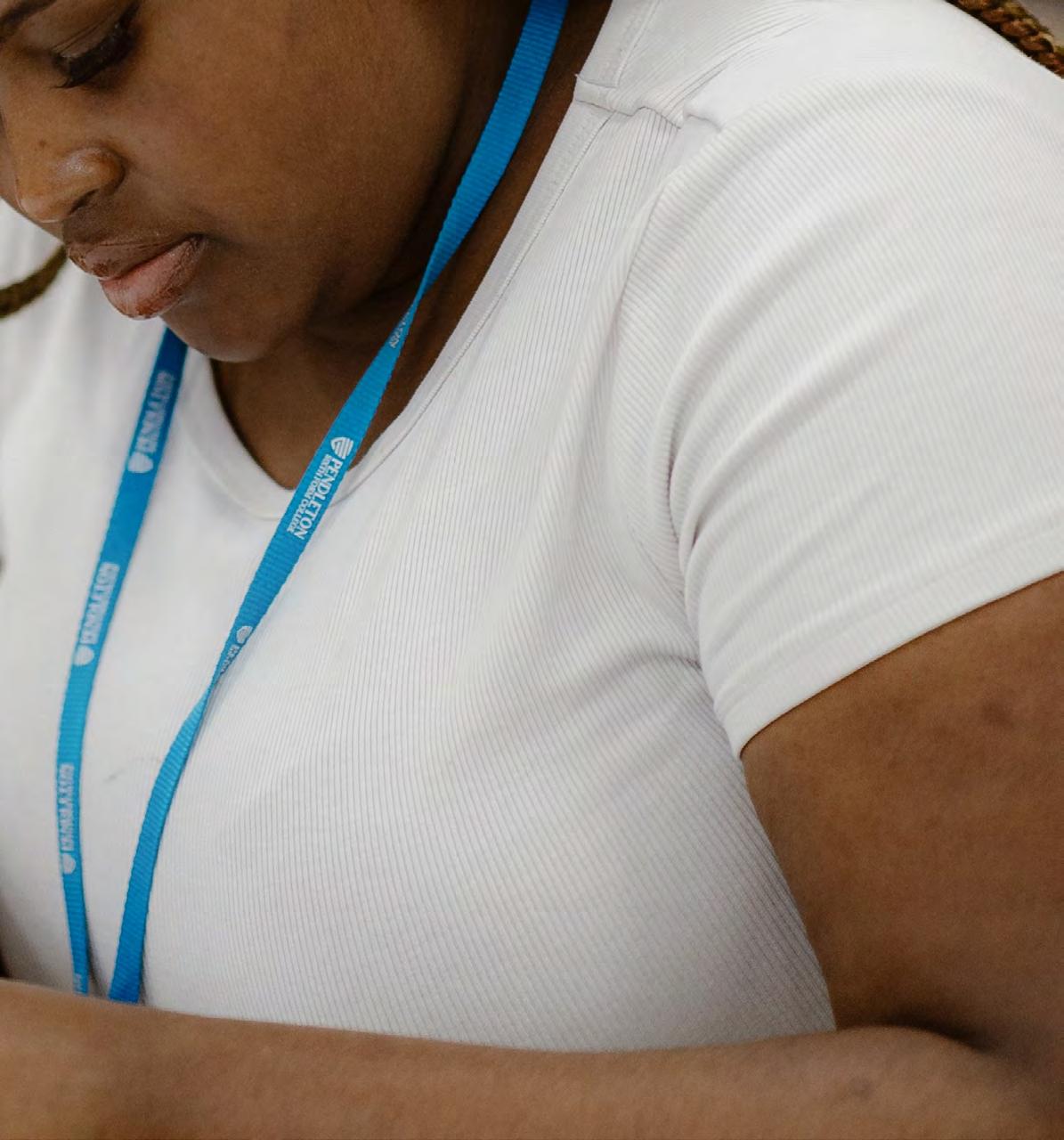
Photography is central to visual communication, impacting everything from advertising to social media. Photographers work across fields like fashion, journalism, and commercial art, helping tell stories, sell products, and report facts. If you’re aiming for a photography career—whether in fashion, photojournalism, or fine art— this course is an ideal foundation.
Outline
The UAL Extended Diploma in Creative Practice: Photography is a full-time Level 3 course, equivalent to three A-levels. It covers visual communication, traditional and digital photography techniques, and encourages creative problem-solving. You’ll explore film photography, darkroom techniques, digital editing with Adobe Photoshop, and experiment with studio and location photography. The course includes personal creative projects, contextual studies, and live industry briefs to prepare you for a career in the creative sector.
Many students progress to top creative degrees. Awarded by UAL, this qualification is recognized internationally for its relevance to industry needs and high achievement rates.
Entry Requirements
Students will need a minimum of five grade 4s at GCSE, which must include a grade 4 in English. Students who enrol on this course will typically have a GCSE (or vocational) qualification in a creative subject. Applicants who do not have a creative qualification will need to demonstrate that they have the necessary knowledge, skills and interest to succeed on the course, usually via a portfolio of creative work produced outside of the school environment. Additional Information: We will consider 1 Vocational qualification in place of a GCSE as long as a grade 4 is achieved in English.
Studying A-level Textiles is both challenging and rewarding, offering textiles-specific knowledge and transferable skills like problem-solving and communication. With deep roots in the Northwest, the fashion and textiles industry provides evolving global opportunities in fields like design, marketing, and journalism. This course prepares you for further study, such as a Level 4 Art Foundation or a creative degree.
Ideal for those interested in colour, texture, and materials, the course explores techniques like stitching, applique, dyeing, and weaving, encouraging experimentation with both traditional and modern approaches. You’ll study artists and designers to support your personal development.
Outline
The course is mostly practical, split into two parts: Personal Investigation (60%) and Externally Set Assignment (40%). The first year focuses on building skills, while the second emphasizes personal creative exploration. All work is externally moderated to meet national standards.
Entry Requirements
Students will need a minimum of six grade 5’s or above, including English Language and Mathematics. In addition, students must have a GCSE (or equivalent) in a creative subject area such as Art, Textiles, or Creative Media.
With over 300 creative subjects available at degree level, students studying creative courses have diverse career opportunities. If you’re aspiring to a creative career but unsure of your direction, this course is for you. Each year, our students gain places at top universities like Glasgow School of Art, Central St Martins, and London College of Fashion.
The UAL Extended Diploma in Creative Practice: Art and Design is a full-time Level 3 course equivalent to three A-levels. It provides an in-depth introduction to the creative industries, helping students discover their strengths. You’ll develop skills in two-dimensional, three-dimensional, and time-based formats, exploring disciplines like drawing, painting, printmaking, photography, textiles, and ceramics. Final projects allow students to create their own briefs and personalize their practice. The course also includes contextual studies, guest speakers, and live briefs to develop your understanding of the global creative community.
Most students progress to creative degrees, with support and expert advice on applying to higher education or exploring alternative career routes. The qualification is awarded by UAL, the UK’s only specialist art and design awarding body, recognized both nationally and internationally. All work is externally moderated to ensure fairness and meet national standards.
Level 2 Vocational Course: For Level 2 Vocational Courses, students are required to have a minimum of four grade 3s at GCSE.
Level 3 Vocational Course: For Level 3 Vocational Courses, students are required to have achieved a minimum of five grade 4s at GCSE, which must include a grade 4 in English and a creative qualification. Applicants who do not have a creative qualification will need to demonstrate that they have the necessary knowledge, skills and interest to succeed on the course, usually via a portfolio of creative work produced outside of the school environment.
Additional Information: For Level 2 Vocational Courses, we will consider 2 Vocationals, ideally one to be in a related subject. For Level 3 Vocational Courses, we will consider 1 Vocational qualification in place of a GCSE as long as a grade 4 is achieved in English.
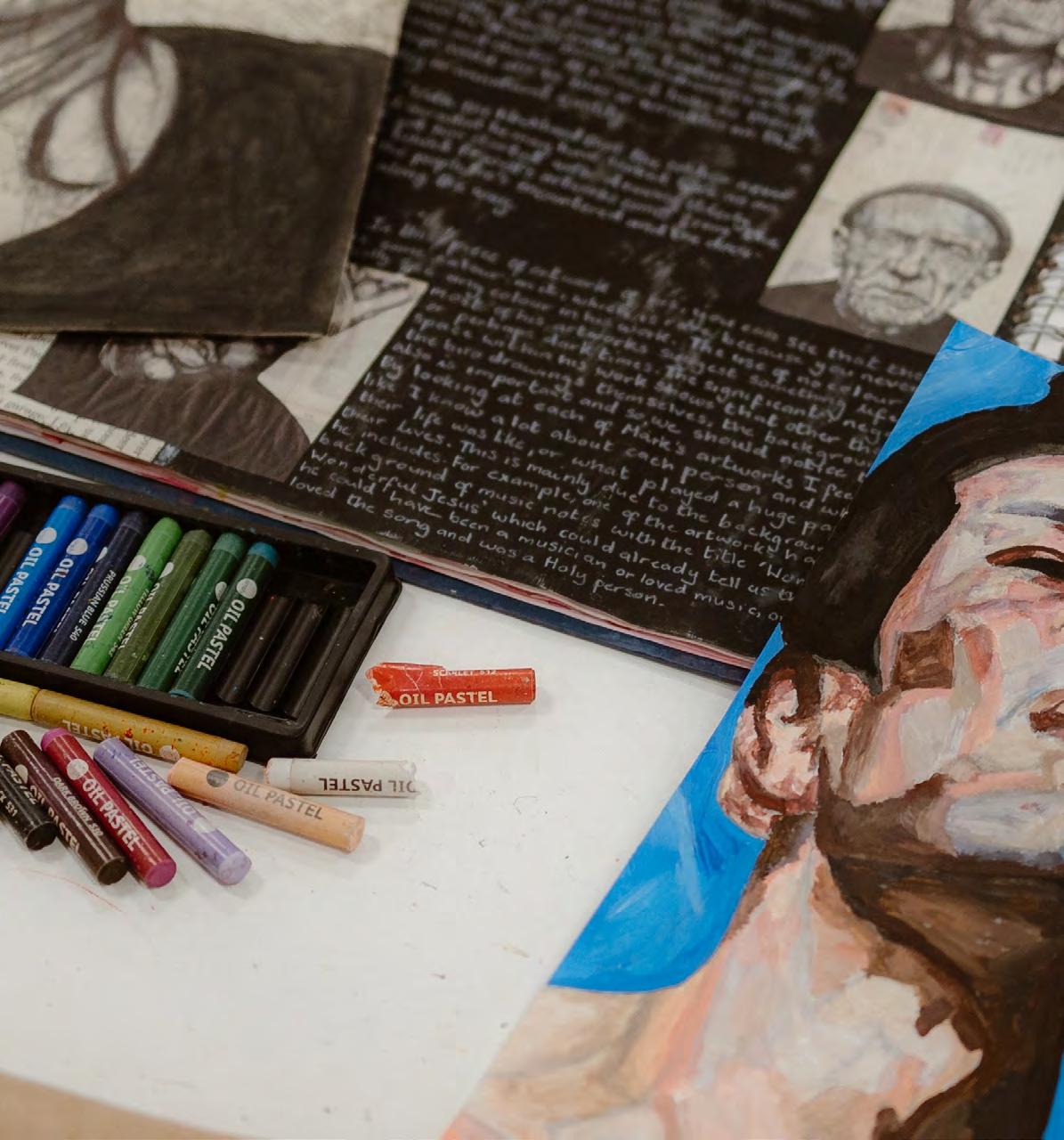
Graphic design is key to how companies connect with global audiences through packaging, adverts, magazines, and digital content. This course is ideal for students aiming to work in fields like print or web design, advertising, animation, or illustration. Career paths include in-house design, UX design, branding, and more.
Outline
The UAL Extended Diploma in Creative Practice: Graphic Design is a full-time Level 3 course, equivalent to three A-levels. It offers a comprehensive introduction to graphic communication, focusing on both digital and traditional techniques. Students will develop critical thinking, problem-solving, and visual communication skills, exploring typography, printmaking, and digital tools like Adobe Photoshop and Illustrator. Personal creative projects, live briefs, and guest speakers further enhance the learning experience.
Graduates often progress to top university degrees and careers in the creative industry. This UAL qualification is internationally recognized for its industry relevance and high achievement rates.
Entry Requirements
Students will need a minimum of five grade 4s at GCSE, which must include a grade 4 in English. Students who enroll on this course will typically have a GCSE (or vocational) qualification in a creative subject. Applicants who do not have a creative qualification will need to demonstrate that they have the necessary knowledge, skills and interest to succeed on the course, usually via a portfolio of creative work produced outside of the school environment. Additional Information: We will consider 1 Vocational qualification in place of a GCSE as long as a grade 4 is achieved in English.
Manchester is a key player in the global fashion trade, housing numerous leading brands and contributing around £32 billion annually to the UK economy, supporting over 890,000 jobs. This course offers students a strong foundation for a career in the dynamic fashion and textiles industry.
The UAL Extended Diploma in Creative Practice: Fashion and Textiles is a full-time Level 3 course, equivalent to three A-levels. It provides an in-depth introduction to fashion and textiles, focusing on essential skills like drawing, printmaking, fabric manipulation, and garment construction. Students will engage in creative assignments that foster critical thinking and problem-solving, alongside contextual studies on ethics and sustainability.
Throughout the course, students will complete personal projects, guided by guest speakers and live briefs from industry professionals. Most graduates progress to a variety of degree courses in the UK’s creative sector, with support for higher education and career paths. This UAL qualification is recognized both nationally and internationally for its relevance to industry needs.
Entry Requirements
Students will need a minimum of five grade 4s at GCSE, which must include a grade 4 in English. Students who enrol on this course will typically have a GCSE (or vocational) qualification in a creative subject. Applicants who do not have a creative qualification will need to demonstrate that they have the necessary knowledge, skills and interest to succeed on the course, usually via a portfolio of creative work produced outside of the school environment. Additional Information: We will consider 1 Vocational qualification in place of a GCSE as long as a grade 4 is achieved in English.
Pendleton Sixth Form College has a proactive English and Modern Foreign Languages Department with a passionate and dedicated team of staff who strive to achieve the highest standards of teaching and learning possible for their students. Studying English and modern foreign languages provides you with an array of possibilities, whether that be further study, future employment or an apprenticeship. As a student within this department you will be able to immerse yourself in a wide range of enrichment activities to further your personal and professional development.
Have you ever wondered where language comes from, how children learn to communicate, how journalism works, why adverts manage to persuade us to buy goods we don’t really need? Students who are creative, enquiring and want to understand how language is used in the world around you, then our course will prepare you for higher study.
Outline
Through the study of English language, students will develop a wide variety of transferable skills such as: effective research and data collection; critical analysis and evaluation of different modes of language; and the use of fluent and coherent written expression.In addition, interpersonal and communication skills are developed through class activities and presentation workshops.All of these skills are highly valued in all industries, leading to careers in a wide variety of professions such as teaching, publishing, journalism and law.The course consists of four components, three exams, language concepts and issues, language across time and creative and critical writing. Component four will cover language issues and will be completed as coursework.
Entry Requirements
Students will need a minimum of six grade 5’s or above, including English Language, English Literature and Mathematics. Additionally, students must have a grade 5 in another written subject. This is an extended writing subject and students will require a good spread of GCSEs in extended writing subjects.
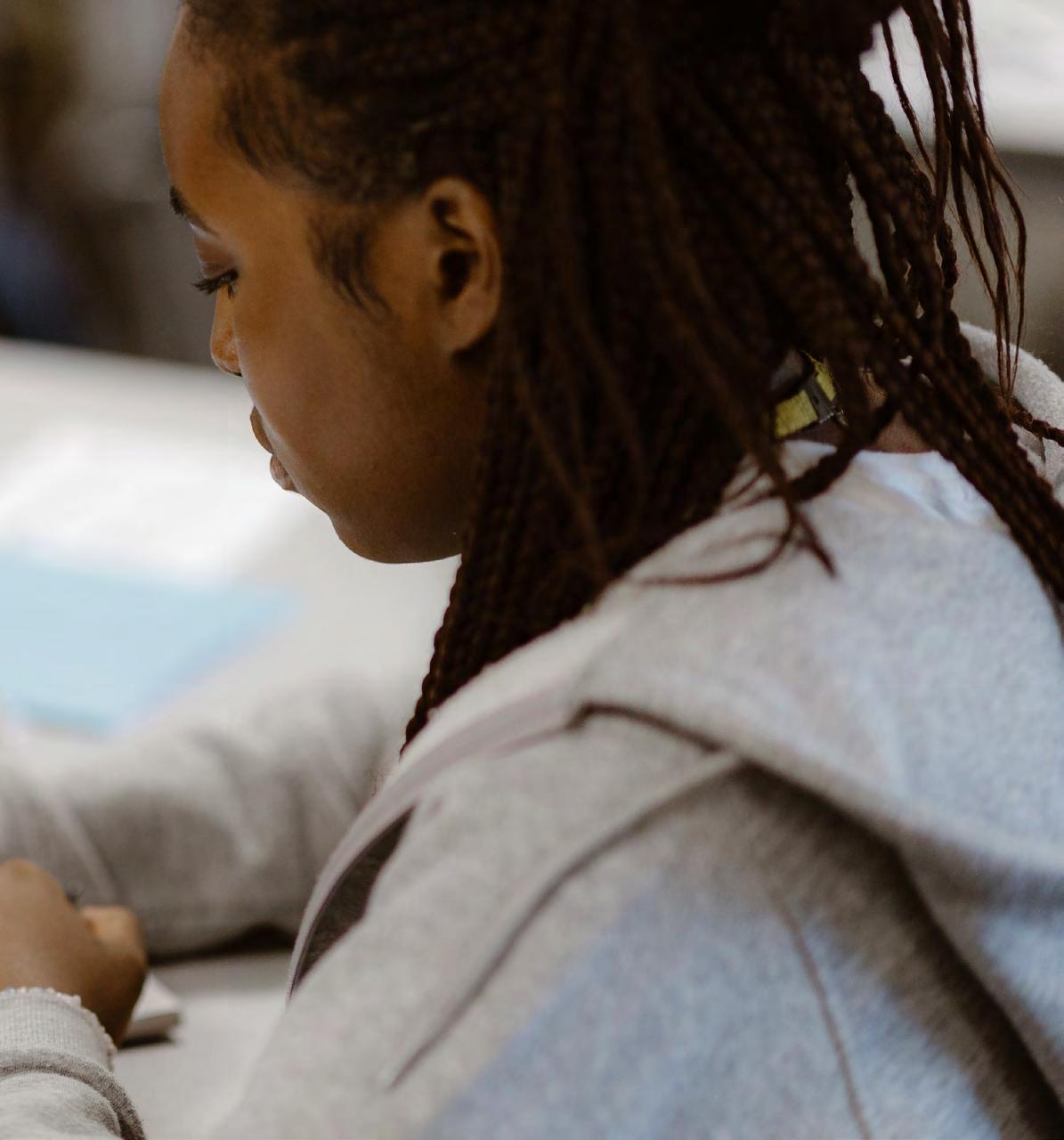
English literature is essentially an investigation into how writers work. Our students become experts in analysing poetry, prose and drama. They will explore how writers construct their texts, how and why readers respond to literature in certain ways, and how historical contexts effect the ways in which texts are produced and understood.
Outline
Through the study of English literature, students will develop strong analytical and academic skills. They will discover a diverse range of historical, social, political and philosophical ideas when learning about how texts are produced. As of result, fluent, coherent and confident written expression will be developed by all our students as will their ability to ask questions and debate.The skills acquired on the course are highly valued by universities and industry, leading to careers in a wide variety of professions such as writing, advertising and marketing, management and leadership, teaching, publishing, journalism and law. Students will have two written examinations plus coursework worth 20% of the total marks. Texts to be study include The Great Gatsby, by F Scott Fitzgerald, Othello, by William Shakespeare, Spies, by Michael Frayn, A Streetcar Named Desire, by Tennessee Williams, Skirrid Hill, by Owen Sheers plus two of their own chosen texts.
Entry Requirements
Students will need a minimum of six grade 5’s or above, including English Language, English Literature and Mathematics. Additionally, students must have a grade 5 in another written subject. This is an extended writing subject and students will require a good spread of GCSEs in extended writing subjects.
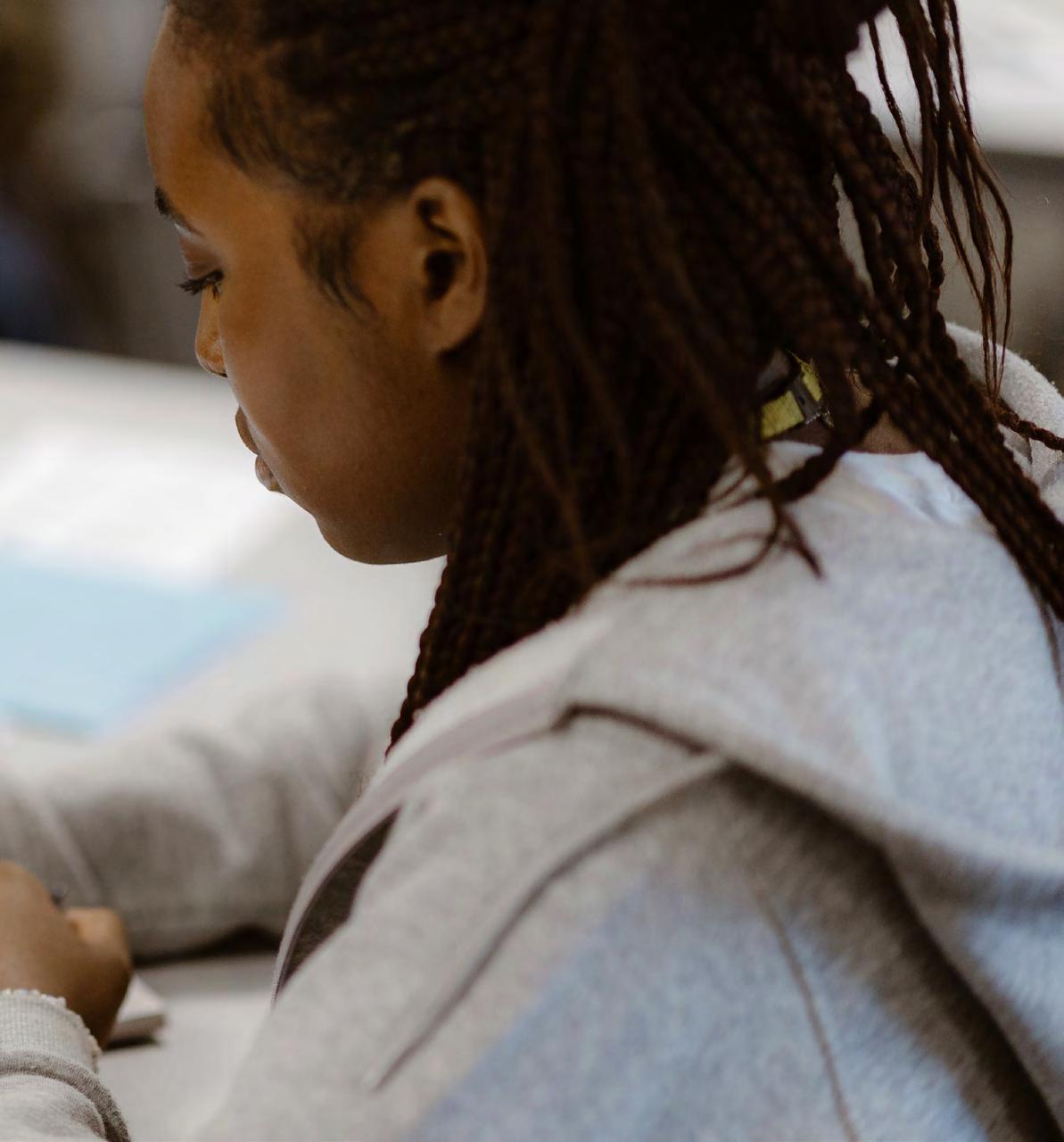
Learning French has never been more important facing the changes between European and UK partnerships. France is a key market for UK export, making the French language one of the most important foreign languages to learn – as classed by UK businesses.Studying French at Pendleton will allow you to quickly become a fluent speaker in the language, offering opportunities both on the UK and on international job markets. We have 100% pass rate and in previous years we have achieved an 86% high grades (A*- B).French is also an analytical language that structures thought and develops critical thinking, a valuable skill for discussions and negotiations. French is also identified by Russell Group Universities as a ‘facilitating subject’ (Informed Choices 2017/18) making it easier to access the best universities.
Outline
Students will complete three examinations at the end of the two years which will include an oral assessment, listening, reading and translation paper and critical response in writing. They will study several topics including cultural identity and marginalisation, cultural enrichment and celebrating difference and France 1940-1950: The occupation and the post-war years.
Entry Requirements
Students will need a minimum of six grade 5’s or above, including English Language and Mathematics. Additionally, students must have a grade 6 in GCSE (or equivalent) French.
Did you know Spanish is the second most natively spoken language in the world? In fact, Spanish is the official language of 20 countries. Learning this challenging subject will allow you to improve your research skills, communication and cultural knowledge of the Latin-American world.Learning Spanish gives you a wide range of transferable skills, the UK needs more linguists than ever in jobs such us, marketing, public relations, the police, teaching etc. If you are prepared to work regularly, practice different skills, learn about other countries and cultures, this is the A-level for you.
Students will focus on learning grammar, vocabulary and how to approach different exam type questions. They will develop listening, reading, writing and translation skills and become fluent in the language. They will be able to express opinions, talk about the topic using relevant information and communicate ideas in an analytical and spontaneous way.Students will complete three examinations which include listening, reading and translation, essay writing and speaking. The topics covered are based on the film “El laberinto del Fauno” and the play “La casa de Bernarda Alba”.
Entry Requirements
Students will need a minimum of six grade 5’s or above, including English Language and Mathematics. Additionally, students must have a grade 6 in GCSE (or equivalent) Spanish.
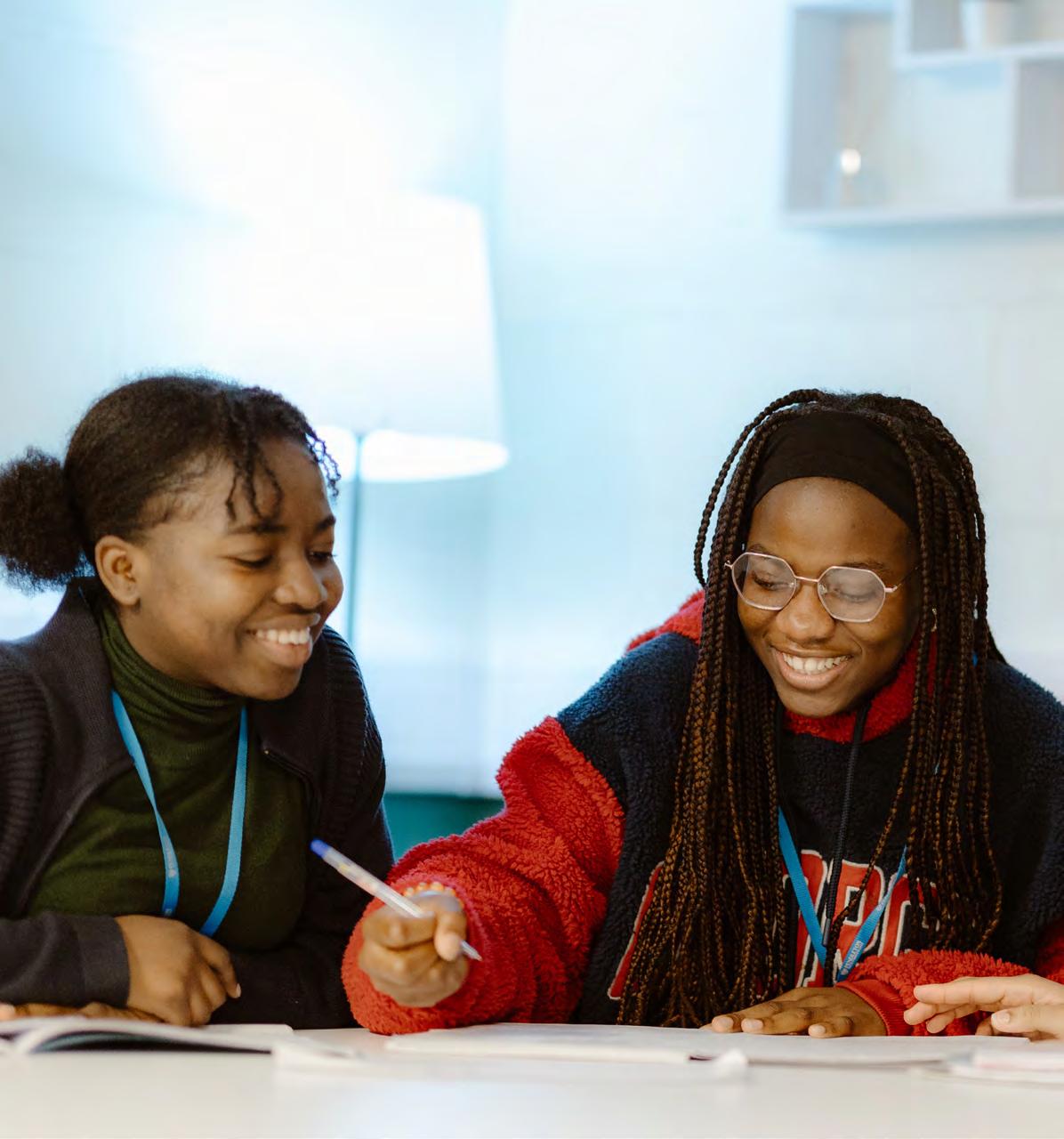
Our Film and Media Department will provide students with the creative, digital and practical skills required to compete within a fastpaced and ever-growing industry. They will learn how to engage with a variety of audiences and learn how to produce work that appeals to them through a selection of resources. Our highly experienced film and media teachers will dedicate their time to ensuring students are well-equipped for the future, whether that be further study, employment or an apprenticeship.
Film is a billion-dollar business. Careers in the industry can range from direction to casting, lighting to sound or even location research. Regardless, opportunities are global.Choosing film studies will give students the creative and practical skills needed to compete in a fast-growing industry. Most students go on to study at university and others gain apprenticeships in the film or media industry. Most universities, including the University of Oxford and the University of Cambridge, offer degrees up to Master’s level in areas of film studies.
Outline
During the course, students will learn about a wide range of films from the early days of silent cinema right through to presentday Hollywood blockbusters. There will be two exams, assessing students on their knowledge of films and film making and global film making perspectives. Students will also have the opportunity to produce their own short film or screenplay in stateof-the-art facilities.
Entry Requirements
Students will need a minimum of six grade 5’s or above, including English Language and Mathematics.
The media industry is one of the fastestgrowing sectors globally, highly relevant to today’s generation. This course explores how media is constructed through storytelling, representations, and manipulative techniques. Students will develop analytical, research, and creative skills, making them dynamic and forwardthinking—qualities valued by employers. Media studies provide a comprehensive understanding of how products and brands are perceived, leading to careers in media, film, radio, marketing, advertising, and teaching.
Students will create two interlinked media products, which include a choice of a music video, magazine pages, DVD cover, film posters or websites, which is worth 30% of their final mark. In addition, students will sit two written exams each worth 35%. They will be examined on a range of media forms, including music videos, films, video games, advertising and marketing and newspapers.
Entry Requirements
Students will need a minimum of six grade 5’s or above, including English Language and Mathematics.
Single Vocational A-Level
Do you dream of becoming a journalist? A reporter? An editor? A public relations specialist? Then this is the course for you. Creative Journalism (Digital Content Production) is a new A-level equivalent course, which can be taken alongside 2 x A-levels. This is the first step to achieving one of the most exciting careers available. Led by a team of industry specialists and former journalists, this programme is designed to introduce you to the fastpaced environment of print, broadcast and online journalism. You will learn how to improve your writing style, how to conduct interviews, create page layout and design, and how to improve your chances of getting your first foot in the door of this competitive industry.
This course covers key aspects of journalism and digital media, including reporting, video and audio production, and digital magazine creation. You’ll develop interviewing techniques, copywriting skills, and learn how to gather information from various sources. The course also explores page layout design for both print and digital platforms, focusing on effective use of text, images, and color. You’ll gain practical experience responding to briefs and working within media industry standards.
Entry Requirements
Students will need a minimum of six grade 5’s or above, including English Language and Mathematics.
Please Note: There are no examinations for this course. Assessed through a portfolio and practical work. Students wishing to study Journalism cannot choose this subject alongside Journalism of Crime.
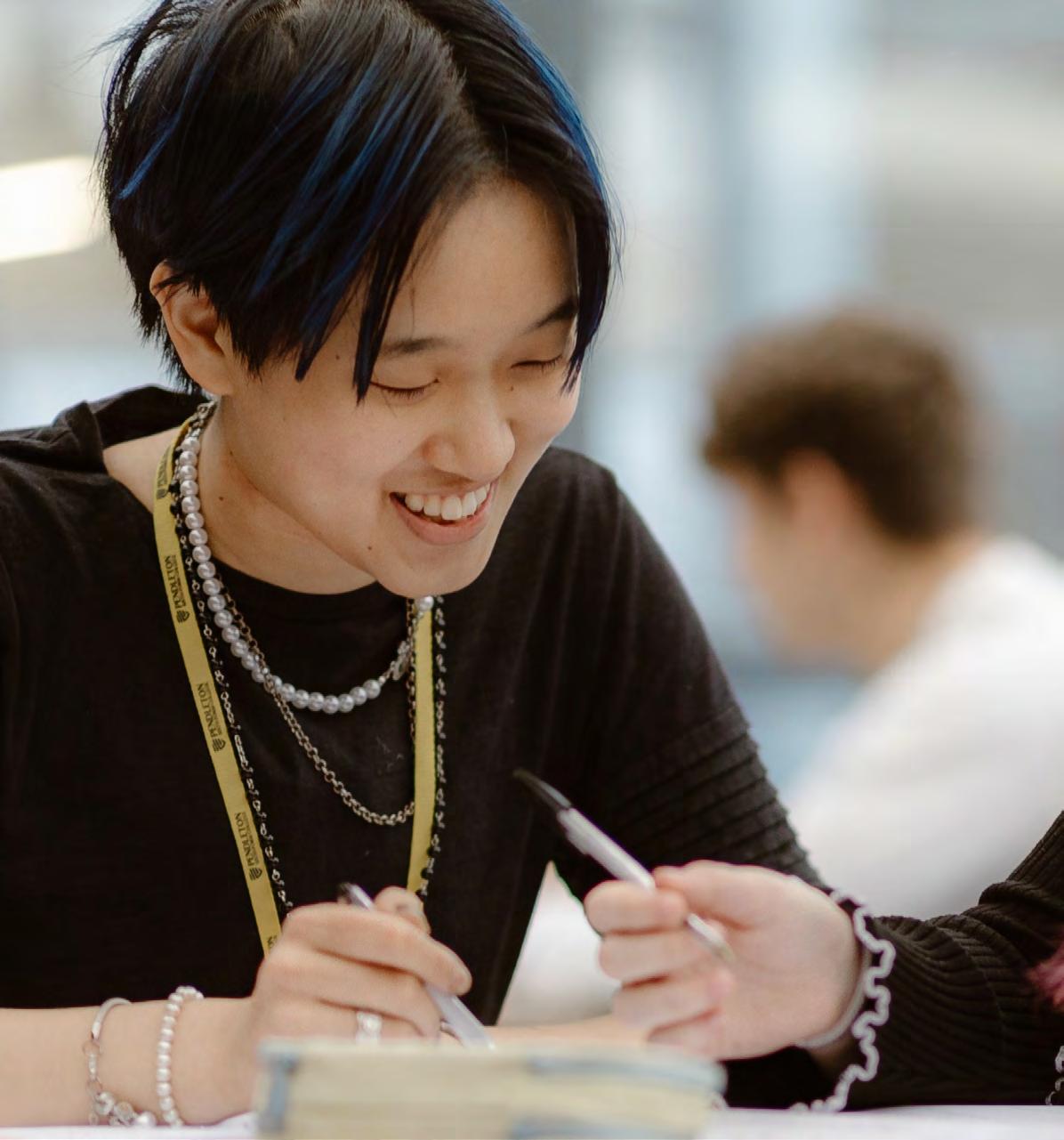
Interested in topics ranging from volcanoes to socialism (and everything in between)? If so, then studying humanities at Pendleton is the right choice. The courses we offer in this department will help you to acquire a better understanding of a broad range of topics and develop a set of academic skills that will allow you to prosper in Higher Education or the workplace. Students will gain attributes from highly-skilled teachers who have a deep passion for their subjects, in addition to outside speakers, overseas trips and high-quality learning resources.
Do you have an interest in Ancient Greece and Ancient Rome? These two civilisations are the inspiration for many aspects of our modern existence – including politics, philosophy, literature, art, sculpture and architecture to name but a few.Classical Civilisation covers elements of literature and ancient history to provide you with a deep understanding of the culture, history and politics of two of the world’s greatest civilisations. This course links closely with history and English literature, plus other humanities subjects, such as modern foreign languages.“I’ve always loved classical civilisation and it was amazing to study in depth at Pendleton Sixth Form College.” Paula Gaskill, former student.
Outline
Students will study three units over two years. Topics include The World of the Hero specifically Homer –The Odyssey and Virgil – The Aeneid. They will also learn about The Imperial Image, which includes the first Roman Empire and Politics of the Late Republican. The department boasts a 100% pass rate in 2018 with students being accepted into prestigious universities including the University of Cambridge to further study the subject.
Entry Requirements
Students will need a minimum of six grade 5’s or above, including English Language and Mathematics. Additionally, students must have a grade 5 in another written subject.
The Guardian has previously claimed Advanced Level Geography was the ‘must have subject’ as it is the ‘subject for our times’.There has never been a better or more important time to study Geography. This cutting-edge subject is continually evolving due to the nature of the course content – there are always relevant examples and case studies being reported in the news. It is demanding but rewarding and will provide students with a well-rounded understanding of the contemporary world.
During this course, students will learn about a range of pressing issues, such as climate change, migration, environmental damage and the widening development gap. Geography is identified as a facilitating subject by Russell Group Universities due to the level of academic rigour in the course and the wide range of transferable skills that students will acquire.Students will also undertake three examinations throughout the two-year course based on physical geography, human geography and synoptic investigation. Students will also have a coursework component that allows them to select an issue or an area of interest, in which they can conduct a piece of geographical research using the skills they have learnt.
Entry Requirements
Students will need a minimum of six grade 5’s or above, including English Language and Mathematics. A grade 5 in GCSE Geography (or Science) is useful.
Ever wondered who helped the African Americans achieve equality? Or how close we really were to a nuclear war in the 1960s? History is a fascinating versatile and highly regarded subject that explores past events and figures who have shaped the world as we know it today. Inspirational history graduates include former US presidents Richard Nixon and Franklin D. Roosevelt, and Borat creator and millionaire Sacha Baron Cohen, who earned his degree from the University of Cambridge, showing exactly what students can aspire to achieve.Studying history not only helps improve your knowledge of the past, but it also helps you develop skills that are invaluable in many jobs. Some of these skills include analysing, researching, communication and problem-solving. Students will also gain the ability to prioritise information and learn how to make vital decisions. This helps them build an important skill-set needed for progression on to university or a successful career.
Outline
This course consists of two exams on The Tudors and The Cold War plus the opportunity for independent study on Civil Rights in America between 1865-1970s.
Entry Requirements
Students will need a minimum of six grade 5’s or above, including English Language and Mathematics.
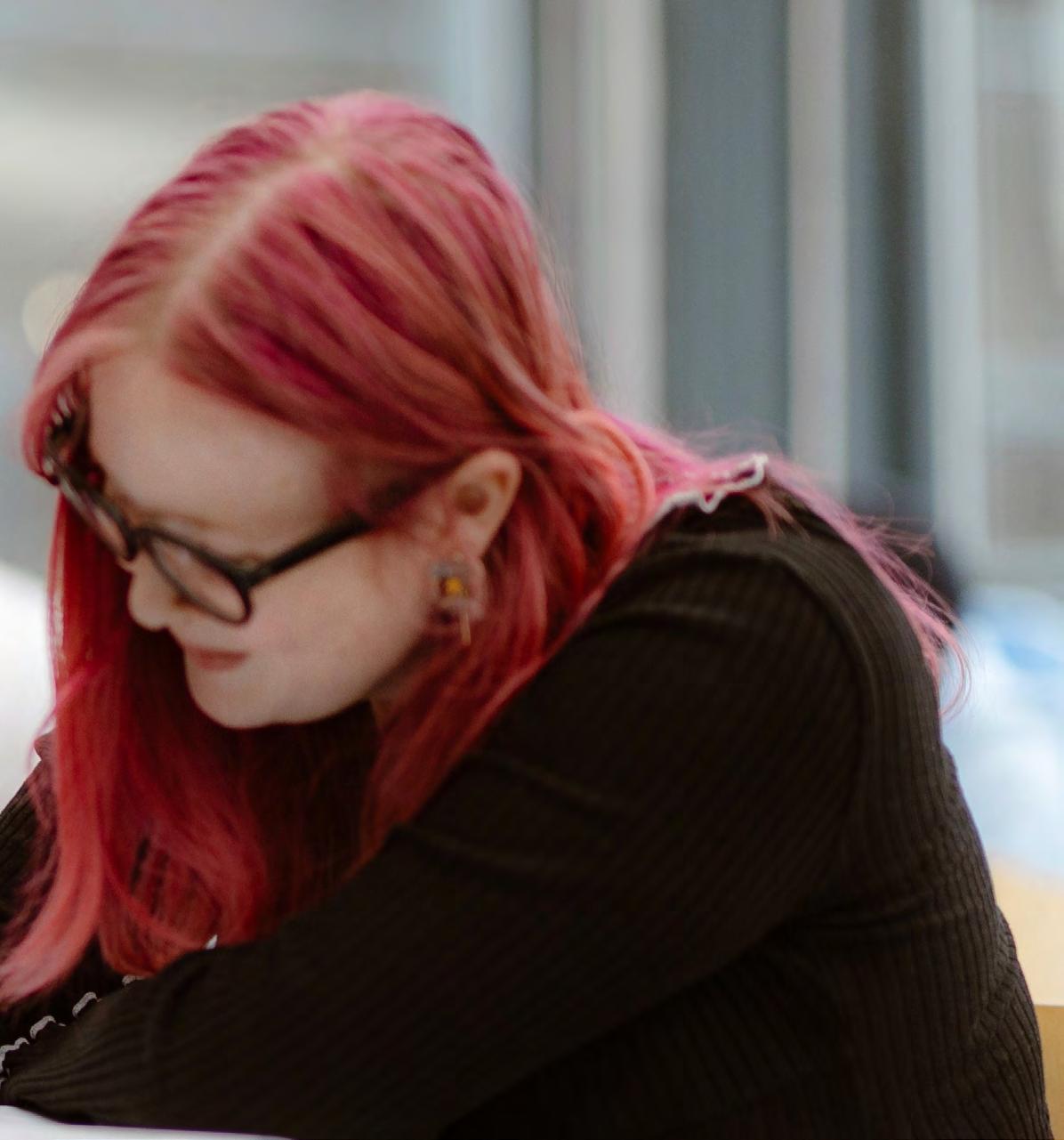
What do Barack Obama, Mahatma Gandhi and Margaret Thatcher all have in common? Interestingly, they were all world leaders who studied law. Law is both a fascinating and challenging subject to undertake, having direct relevance to many aspects of everyday life. The course gives you the opportunity to experience the real-life justice system with trips to Manchester Magistrates and Manchester Crown Court as well as commercial law firms. Many students are part of the Pathways to Law Programme, which supports student’s progression by giving them access to top university law faculties and esteemed legal professionals. Law gives students a wide range of transferable skills that are crucial in Higher Education and the workplace. These includes analytical skills, problem solving, thinking in a logical manner, creating constructive arguments and above all else communication skills. Students will be taught to deal with large volumes of factual information and be able to draw on this in support of their answers.
Outline
Students will study the following topics: the English legal system, law making, criminal law, law of tort, law of contract and the nature of law, which could highlight areas such as law and morality, law and technology and law and society. They will all be assessed by three examinations throughout the two years.
Entry Requirements
Students will need a minimum of six grade 5’s or above, including English Language, English Literature and Mathematics. Additionally, students must have a grade 5 in another written subject. This is an extended writing subject and students will require a good spread of GCSEs in extended writing subjects.
Would you like to understand why people have different points of view on societal issues? Do you want to know how the laws that govern the UK are made? Are you interested in why China might be becoming the most powerful country in the world?If the answer is yes to any of these questions, then A Level Politics is for you. It is an academically challenging course, which will help prepare you for further study at university or to enter the job market. You will learn a range of skills including source analysis, extended essay writing and high-level reasoning.
Outline
Paper 1 UK Politics: democracy and participation; political parties; electoral systems and voting behaviour; political ideas – liberalism, socialism and conservatismPaper 2 UK Government: the constitution; Parliament; the executive; the relations between branches; political ideas – nationalismPaper 3: Global Politics – theories of international relations; the nationstate; global political and economic governance; human rights and the environment; power in international relations; regionalism
Entry Requirements
Students will need a minimum of six grade 5’s or above, including English Language, English Literature and Mathematics. Additionally, students must have a grade 5 in another written subject. This is an extended writing subject and students will require a good spread of GCSEs in extended writing subjects.
Single Vocational A-Level
Ever wondered how the criminal mind works? What causes criminal behaviour and how it can be prevented? Criminology offers an insight into the criminal mind, types of crime and investigative techniques associated with crime scenes and evidence gathering. It is one of the most popular subjects to study at degree level and our course prepares students for the psychological, sociological and legal aspects of the subject.Students will study a variety of different subjects of crime and delve into techniques to investigate crime scenes and interview suspects. They will also review numerous real-life cases of famous crimes in order to draw conclusions in relation to the quality of the evidence presented at trial.
Outline
For the exam component, students will learn about various punishments and their effectiveness and tactics involved in keeping law and order. Other topics will include criminological theories, crime scene to courtroom, crime and punishment and media representations of crime.
Entry Requirements
Students will need a minimum of six grade 5’s or above, including English Language and Mathematics.
Discover Sociology A-Level, where you’ll explore society, culture, and inequalities like sexism, racism, and poverty. Investigate family roles, media, and more. Excursions provide insights into UK youth challenges. Join us for an empowering journey to understand and engage with the world.
Outline
Students will study topics including criminal gangs, why girls are outperforming boys at school, why people join religious cults, and the media’s role in creating moral panics around child killers. They will develop excellent debating and communication skills, by engaging in lively classroom debates. The course will develop their analytical skills and encourage students to critically evaluate the complex and diverse world around them.
Entry Requirements
Students will need a minimum of six grade 5’s or above, including English Language, English Literature and Mathematics. This is an extended writing subject and students will require a good spread of GCSEs in extended writing subjects.
Psychology is the scientific study of the human mind and behaviour. This course is for those who have an enquiring mind, like to discuss and wish to gain an understanding of how humans (and non-humans) develop, socialise and interact with each other. Psychology is not just an academic subject; it’s a life skill.
Outline
This fascinating subject covers a wide range of subtopics, including cognitive mental processes (memory and attention), how humans develop through different stages of life and how biological and environmental factors play a role in their behaviour (nature vs nurture), the study of mental health disorders and criminal behaviour.Throughout the course, students will be provided with the key skills needed to critically analyse, research and gain independence in their ability to study key concepts and construct essays. Students will study topics such as regions and functions of the brain, moral development in children and responses to people in authority. In year two, students will be introduced to component three – applied psychology. They will explore the historical view of mental illness, different expectations of why illnesses develop and the range of treatments.
Students will need a minimum of six grade 5’s or above, including English Language, English Literature and Mathematics. This is an extended writing subject and students will require a good spread of GCSEs in extended writing subjects.
The Pendleton School of Theatre has an undisputed reputation for outstanding teaching and training and for ensuring that all students are given the support and encouragement they need to pursue their dreams. Support will be offered to enable all of our students to make a confident and informed decision about the next stage of their career – whether it is a place at a drama school, university or full-time employment.
On top of this, our enrichment programme is extensive. Students come to Pendleton because they know we will give them the best chance to progress to drama schools, dance academies, technical theatre courses and top performing arts universities across the UK, USA and Europe. We simply have an outstanding track record for progression.
The famous saying goes, ‘dance like nobody is watching’. A-level Dance enables students to be whoever they want to be. The course is for those who have a passion for dancing – whether they want to become a dancer in the future or not. The subject opens doors into many different industries and pathways and will have our students dance into their chosen career with grace and charisma.Students will be taught professional repertoire from some of the leading professional dance companies in the UK and abroad.They will learn to demonstrate an in-depth knowledge and understanding of dance and its developments over time including: style, technique, influences, key practitioners, professional repertoire and communication of dance ideas. Students will practice:DISCIPLINE AUTONOMY NATURALISTIC TECHNIQUE CREATIVITY EXPRESSION. Our former students have been very successful in securing places at dance conservatoires such as Trinity Laban and Northern School of Contemporary Dance. Students have also gained places at London Studio Centre, Bird, Laines, Urdang and the University of Leeds.
Outline
Assessment will include a practical and written exam as students will be assessed on both their dance talent and technique as well as their academic abilities.
Entry Requirements
Students will need a minimum of six grade 5’s or above, including English Language and Mathematics.
Please note: Some dance experience is essential for successfully completing our A-level Dance qualification. Students are required to successfully complete an interview and audition.
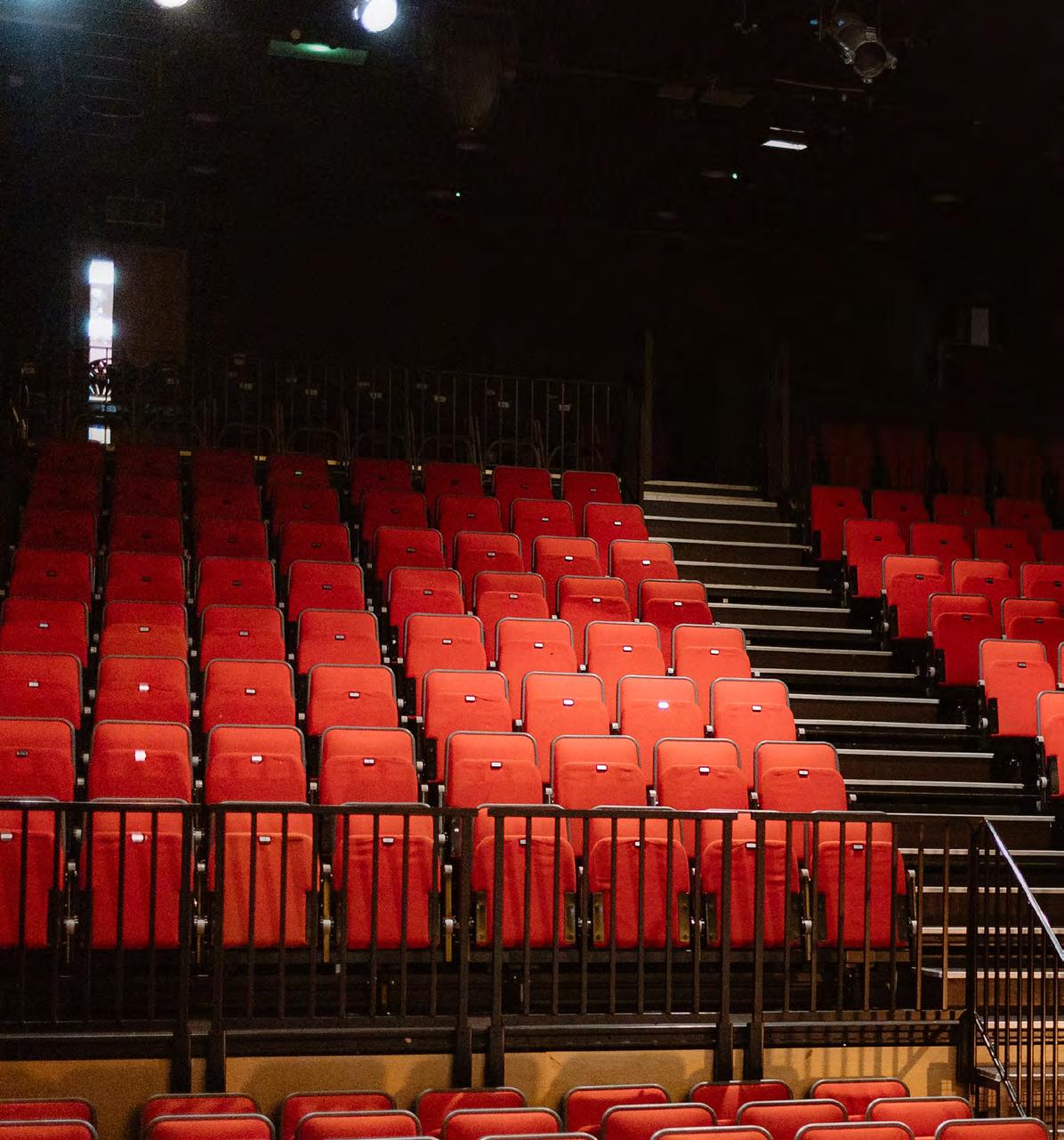
Whatever the future holds, students of drama and theatre studies emerge with a tool kit of transferable skills preparing them for their next steps. The course is well and widely respected by Higher Education institutions and employers alike. In fact, since 2012, more than 9,994 students studying at Russell Group universities, have an A-level in drama and theatre studies. Some of our own most successful former students include Michelle Keegan, Coronation Street and Our Girl and Simona Bitmate who starred in Mike Leigh’s Peterloo.This course looks at the practices and theories of classical and contemporary playwrights, directors and practitioners of drama. It aims to develop awareness of a range of significant theatre practitioners through the observation and analysis of existing and emerging performance work, practical exploration of texts and practitioner techniques.
Outline
Students will study two set plays; Antigone and Metamorphosis. They will also create and perform a devised piece applying the techniques of a significant practitioner such as Frantic Assembly.
Students will need a minimum of six grade 5’s or above, including English Language, English Literature and Mathematics.
Please note: Students are required to successfully complete an interview and audition.
The Acting Triple Vocational A-Level is perfect for students aspiring to perform on stage,TV, or in film. This course emphasizes practical acting methods, offering hands-on experience in live performances and group activities. Students will be mentored by highly qualified staff, who have trained at renowned institutions like Mountview Theatre School, RADA, and Rose Bruford College.
Students will explore various acting styles, from classical to contemporary theatre, while developing key skills in voice acting, directing, and devising performances. The course encourages research into the historical context of plays, helping students become disciplined, versatile performers. Assessment is based on a portfolio of work, covering topics such as principles of acting, improvisation, and children’s theatre. This qualification is equivalent to three A-levels and is well-suited for progression to drama schools, universities, or direct entry into the acting industry.
Students will need a minimum of five grade 4s at GCSE including a grade 4 in GCSE English. GCSE Drama is not a requirement of the course but a passion for the subject is essential.
Students who are passionate about dance will have unrivalled opportunities during their studies. The Pendleton School of Theatre has unique links with industry professionals including Tangled Dance Company, Tap Dance Festival UK and Rambert Dance Company. Students will have the chance to audition for a scholarship to attend Washington DC Tap Fest and Tap City Festival in New York.
This course gives students the practical technique, skills and knowledge to take the next steps towards becoming a professional dance artist whether on stage or creating their own productions. If students have a genuine interest in all aspects of dance, enjoy watching and performing dance and want to study the dancer in action, then the vocational aspects of this course will benefit them greatly. They will need dedication, drive and determination for the course and will be rewarded through the many college productions we deliver, the improvement in skill level and a deeper understanding of dance within history, culture and todays industry. This course will be split into four different categories; technique, creative, performance and theoretical. It includes a collection of different units such as urban dance, choreographic principles, arts in the community, jazz and classical ballet technique.
Students will need a minimum of five grade 4s at GCSE including a grade 4 in GCSE English. GCSE Drama is not a requirement of the course but a passion for the subject is essential.Additional Information: We will consider 1 Vocational qualification in place of a GCSE as long as a grade 4 is achieved in English. Students are also required to pass an audition to study on this subject.
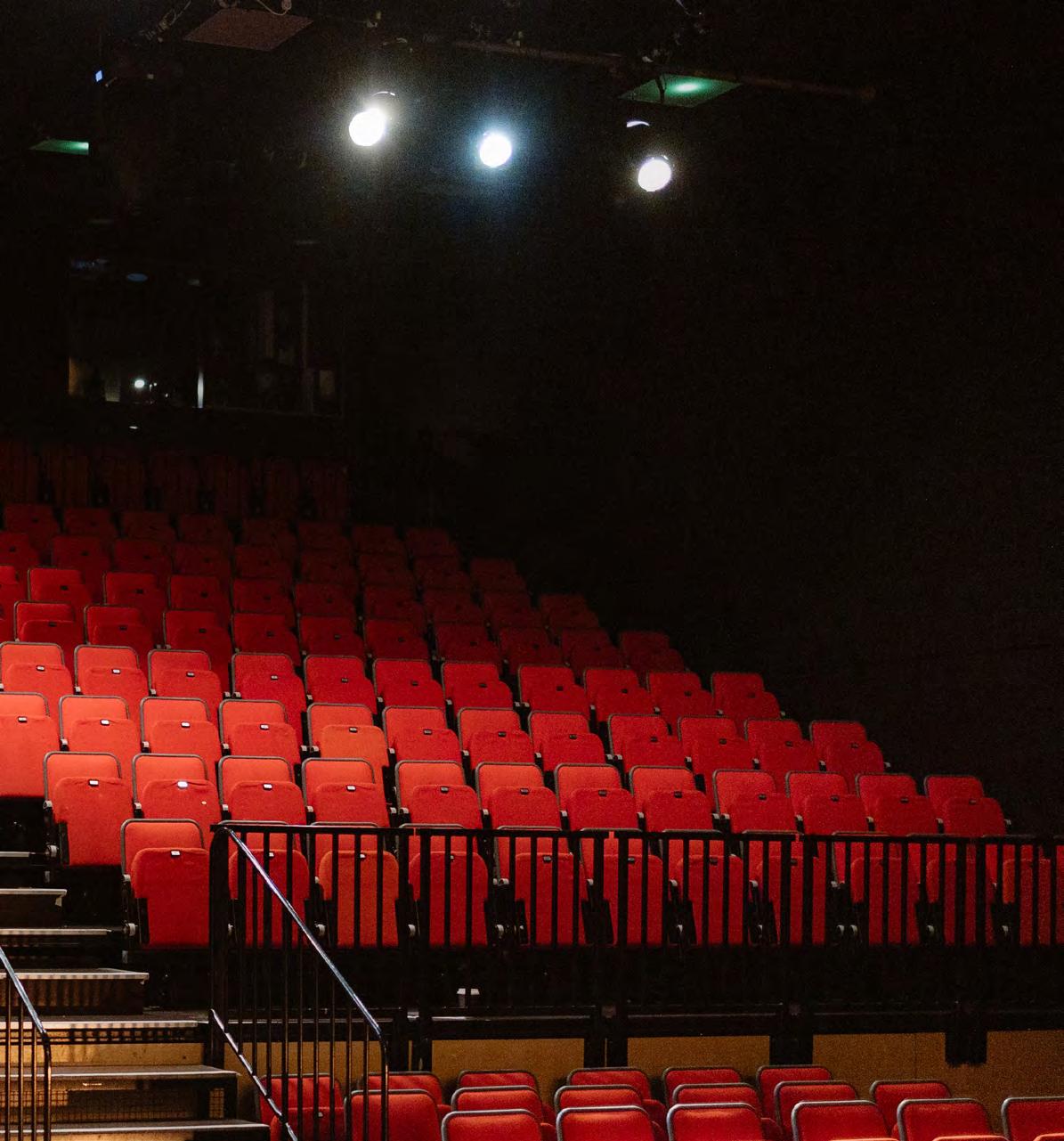
If a student perceives themselves to be a triple threat performer with a passion for acting, singing and dancing, this course is perfect for them and will nurture all three talents. To ensure students exceed in all areas, our department puts on an abundance of extracurricular activities which include one-to-one singing and monologue tuition, Dance Company and acting through speech and song training. The course has a strong focus on technical training in each discipline with numerous performance opportunities embedded into the curriculum, with theoretical elements of the course underpinning our students’ practical understanding.With the variety on offer, the course aims to create well-informed, reflective and skilled performers who are equipped for their next step into a successful career in musical theatre. Current successes include former student Maiya QuansahBreed who recently starred in Six the Musical and who is an Olivier-nominated actress. We also teach and nurture many transferable skills that link into other routes of employment, education and training with past alumni also finding success in routes such as education, creative writing or media.
The course is made up of technical, creative, performance-based and theoretical units. It includes developing voice for the actor, classical theatre, singing techniques and performance.
Students will need a minimum of five grade 4s at GCSE including a grade 4 in GCSE English. GCSE Drama is not a requirement of the course but a passion for the subject is essential. Additional Information: We will consider 1 Vocational qualification in place of a GCSE as long as a grade 4 is achieved in English. Students are also required to pass an audition to study on this subject.
This course boasts 100% progression on to Higher Education, further training and employment in production arts. Progression spans from theatre, film, TV, music to live events and is one of the fastest growing sectors across the world. Students can take advantage of our industry links with a number of production companies and theatres. These include ongoing placements at dbnAudile, Manchester’s Park Life Festival, Torpedo, Walk the Plank Theatre Company and Salford Arts Theatre. Through practical exploration of a vast range of performance projects, students will develop and hone specialist design, creative, technical and management skills required to work successfully in this industry. Former students have progressed as sound engineers in both music concerts and theatre productions, lighting designers and stage managers in London’s West End.
Assessment focuses on five principle areas: stage management, lighting, sound, scenography and visual imagery. Students will be evaluated through a range of practical performance projects.
Entry Requirements
Level 2 Vocational Course: Students are required to have a minimum of four grade 3s at GCSE.Level 3 Vocational Course: Students will need a minimum of five grade 4s at GCSE including a grade 4 in English. GCSE Drama is not a requirement of the course but a passion for the subject is essential. Preferably, students will have previous experience in school productions or working with local theatre companies.Additional Information: For Level 2 Vocational Courses, we will consider 2 Vocationals, ideally one to be in a related subject. For Level 3 Vocational Courses, we will consider 1 Vocational qualification in place of a GCSE as long as a grade 4 is achieved in English.
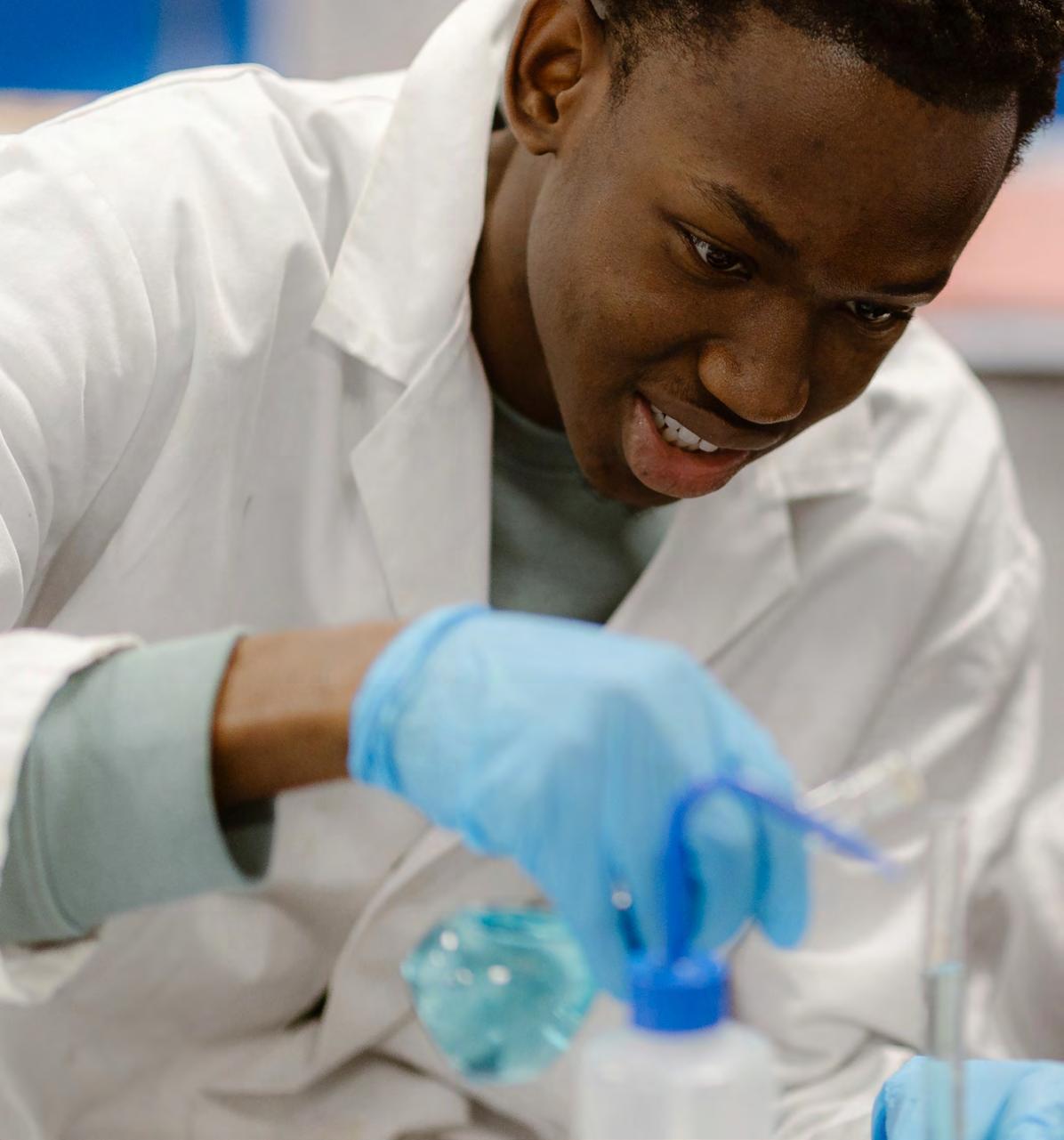
Students studying science, technology, engineering and mathematics at Pendleton Sixth Form College have access to newly refurbished laboratories, as well as a highly experienced and qualified team of teachers, including six with PhDs in their subject specialisms. There is a strong enrichment programme, including the STEM Academy, Nuffield Research Placements, Science Society and Physics XL, as well as trips, competitions and guest speakers.
What happens when sugar dissolves in tea? Why is mercury a liquid at room temperature? How do we make plastics? What can we do about global warming? How will we be affected if oil runs out? From baking a cake to recharging a mobile phone, chemistry is involved in everything we do; and everyone’s life is inextricably influenced by many aspects of chemistry. The subject will continue to be at the forefront of responding to the needs of society, with chemists central to making advances in designing new materials, efficient energy use, drug development, and technology for many years to come. Chemistry is essential for progressing to university to study medicine, dentistry or veterinary science. The course builds upon the strong foundation developed in GCSE chemistry, science and mathematics to introduce further ideas and concepts in physical and organic chemistry.
Outline
Students will study the following topics: the English legal system, law making, criminal law, law of tort, law of contract and the nature of law, which could highlight areas such as law and morality, law and technology and law and society. They will all be assessed by three examinations throughout the two years.
Entry Requirements
Students will need a minimum of six grade 5’s or above, including English Language. In addition, students must have a grade 6 in GCSE (or equivalent) Mathematics and a grade 6 in GCSE Chemistry. For those who have studied Combined Science, a grade of 6-6 is required.
Students wishing to study this subject must also have a G-Score of 6. Ideally, this subject should be taken alongside other subjects that fortify the skill set, such as Biology, Mathematics, or Geography.
Biology is the study of life itself. The subject explores the theories and principals involved in living systems, in all their intricate beauty. If you are interested in recent developments in genetic engineering or disease prevention, understanding how we evolved, tracking down natural resources, the true impacts of pollution on the natural world, or even animal care and conservation programmes, then this is the course for you.During their studies, students’ practical skills will improve and by the end of the course they will be designing, carrying out, and analysing the results of their own practical experiments, just as they would in ‘the real world’. They will gain an understanding of how society makes decisions about scientific issues, as well some of the ways in which the scientific community contributes to the success of the economy.
Over the two years, students will be required to carry out 12 practical experiments and three examinations. The core content will include genetics, population, evolution and ecosystems.
Students will need a minimum of six grade 5’s or above, including English Language. In addition, students must have a grade 6 in GCSE (or equivalent) Mathematics and a grade 6 in GCSE Biology. For those who have studied Combined Science, a grade of 6-6 is required.
Students wishing to study this subject must also have a G-Score of 6. Ideally, this subject should be taken alongside other subjects that fortify the skill set, such as Chemistry, Mathematics, or Geography.
Core mathematics is the maths of the real world. Instead of abstract theoretical questions we look at the complex tangle of numbers that surround us. Students will learn how to spot flaws in other people’s arguments and how to make money by investing, borrowing and using their knowledge of taxes and foreign currency. If you enjoy using numbers, spotting trends in data and solving puzzles, then core mathematics will definitely be an attractive subject for you.This is a one-year Level 3 qualification that enables students to develop their mathematics and gain UCAS points towards an application to university. The course sits within the A-Level programme and is equivalent to an AS-Level qualification.
Outline
You will study the power of estimation and learn to extract data from graphs from a variety of contexts like climate change temperature, growth of the stock-market or radioactive decay.
Entry Requirements
Students will need a minimum of six grade 5’s or above, including English Language and Mathematics.
Please note: This is a one-year course.
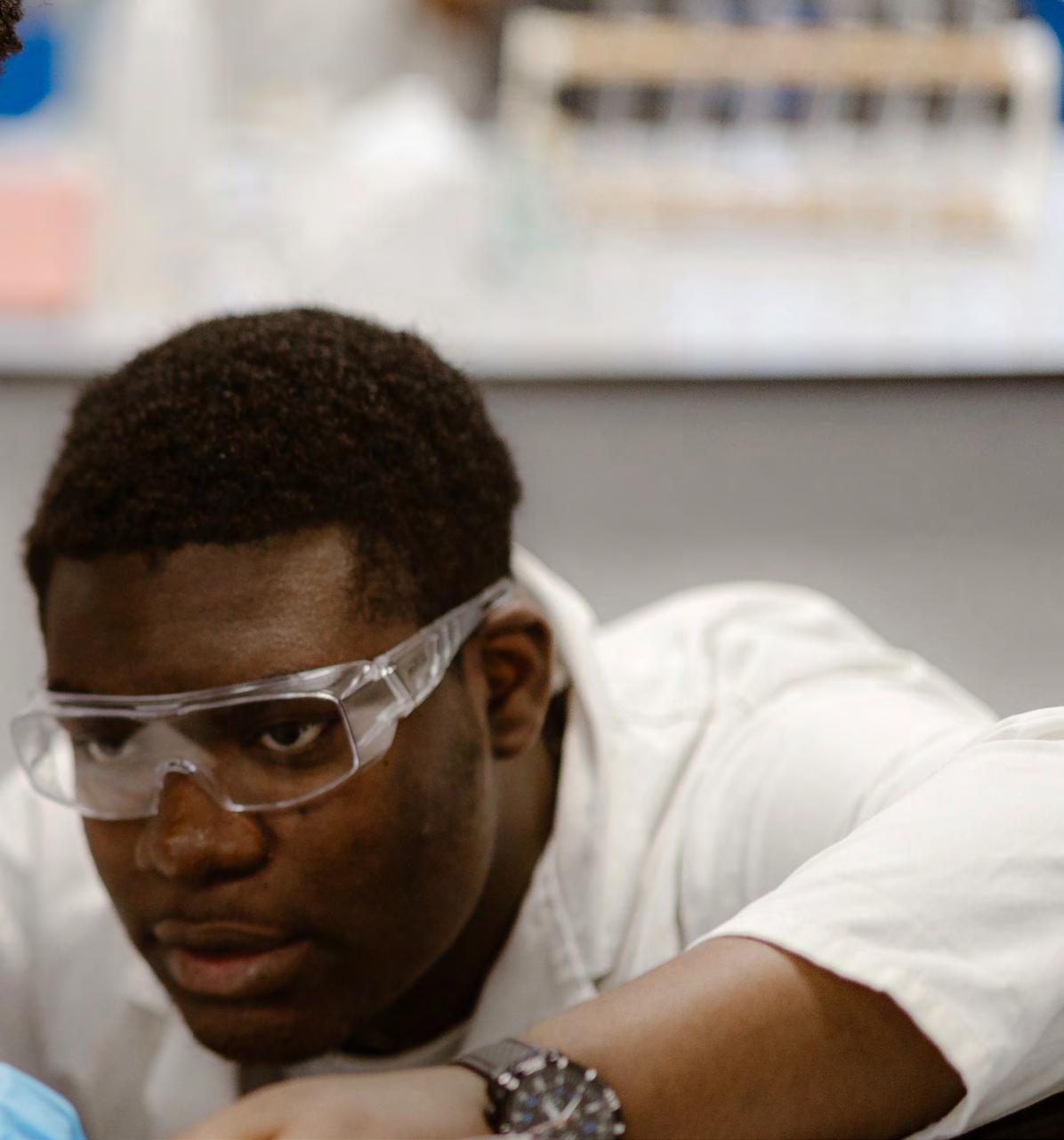
What would happen if you could square-root negative numbers? There are infinitely many numbers, so how can we prove that something is true for all of them? How does a satnav choose the best route? How can we use energy to wipe all the complexity from speed/time/acceleration calculations in ordinary maths? This course takes all of the elements of A-level Maths and takes them to a new dimension.
It’s a challenging qualification that deepens your knowledge and understanding of the subject. Students will learn new areas of pure mathematics and further study applications of mathematics in mechanics, statistics and decisions. Some prestigious university courses require students to have a further mathematics qualification. This course is highly beneficial and will clearly demonstrate their total commitment, resilience and ability to focus on challenging content.
Outline
The course consists of four externally-examined papers and topics include further vectors, hyperbolic functions, differential equations, further mechanics and statistics, to name a few.
Entry Requirements
Students will need a minimum of six grade 5’s or above, including English Language and a grade 7 in Mathematics.
The scale of physics ranges from the sub-atomic level to the vastness of space in between galaxies. The understanding of physics helps us to comprehend the fundamental nature of the universe. If students are interested in quantum physics, mechanics, waves, thermal physics and particle physics and are keen to find out more, then this is the perfect subject to study. Students will already have studied topics such as forces, waves, radioactivity, electricity and magnetism. At Advanced Level, they will look at these areas in more detail and find out how they are interconnected.They will also learn how to apply maths to real- world problems and explore new areas such as particle physics, cosmology and medical physics. Perhaps more importantly, students will develop skills that can be transferred to just about any other area of work, from setting up a business to saving the planet. Physics won’t give all the answers, but it will teach how to ask the right questions.
Outline
Examinations consist of three papers that cover core content such as nuclear physics, astrophysics, electronics, particles and radiation. Students will also be required to complete 12 practical experiments throughout the two-year course.
Entry Requirements
Students will need a minimum of six grade 5’s or above, including English Language. In addition, students must have a grade 6 in GCSE (or equivalent) Mathematics and a grade 6 in GCSE Physics. For those who have studied Combined Science, a grade of 6-6 is required.
Students wishing to study this subject must also have a G-Score of 6. Ideally, this subject should be taken alongside Mathematics.
Mathematics is undoubtedly one of the most valued and versatile qualifications available. The reason why so many employers and universities highly regard mathematics qualifications is because students become better at thinking logically and analytically after completion. This course gives students the ability to develop resilience and to think creatively and strategically through solving problems. They will have the opportunity to enhance their algebra and learn more about maths within business and engineering through statistics and mechanics.They will also develop their skills in tackling everyday issues like planning projects, managing budgets and even debating effectively.
Outline
Students will complete three written examinations as assessment for this course. Topics covered include algebra and functions, trigonometry, statistical sampling, forces and Newton’s laws, to name a few.
Entry Requirements
Students will need a minimum of six grade 5’s or above, including English Language. In addition, students must have a grade 6 in GCSE (or equivalent) Mathematics.
Students wishing to study this subject must also have a G-Score of 6. Ideally, this subject should be taken alongside other subjects that fortify the skill set, such as Biology, Mathematics, or Geography.
Please Note:There will be an induction assessment to ascertain mathematical aptitude in the first 2-3 weeks of this course.
Single Vocational A-Level
This course is designed to develop the scientists of the future. Students with a keen interest in the sciences, particularly practical work, who enjoy solving problems and using logic in daily situations will enjoy the combination of biology, chemistry and physics this course offers. Students will develop a wide range of experimental skills, which will give them excellent preparation for laboratory-based careers or university science courses.
Outline
All students will be taught by well qualified and experienced teachers who are experts in their fields. Lessons take place in our £1m refurbished laboratories and classrooms in our Centre of Excellence for STEM. They are guided to become independent students who are capable of producing high-quality work through research, revision and extra support.
Entry Requirements
Students will need a minimum of six grade 5’s or above, including English Language and Mathematics. Additionally, students must achieve at least two grade 5’s from a selection of Mathematics, Combined Science, Physics, Chemistry, or Biology, with the remaining grades in these subjects at a minimum of grade 4.
Please Note: Students wishing to study Applied Science cannot choose this subject alongside Applied Human Biology.

Single Vocational A-Level
This is the only Space Engineering course in the North of England and one of only two in the country. We partner with the National Space Academy and the UK Space Agency to deliver a unique qualification. If students have ever dreamt of being an astronaut, this course offers an insight into the universe. Aeronautics is a global business, with more than 1.5 million jobs, which results in high levels of public-private investments in research and technology.
Outline
In this course, students will study engineering concepts, mechanical systems and mathematics with particular emphasis on space and the aeronautics industry. Practical skills such as drawing, design, electronics and workshop skills are also introduced throughout the two years.
Entry Requirements
Students will need a minimum of six grade 5’s or above, including English Language and Mathematics. Additionally, students must have either two grade 4’s in Combined Science or a grade 5 in Physics.
Single Vocational A-Level
This course is designed for students progressing to careers in allied healthcare, sports science and psychology, and for students with a keen interest in the human aspects of biology and biochemistry, particularly practical work. Students will develop a wide range of experimental and written skills, which will give them excellent preparation for a wide variety of healthcare careers or university biology courses.
Outline
Students are assessed in a highly scientific context and trained to present and research their own work to show strong competency in scientific written skills and in mathematics. The course is graded by internal assessment and externally marked examinations in both years. Curriculum will be a mix of classroom learning and practical tasks.
Entry Requirements
Students will need a minimum of six grade 5’s or above, including English Language and Mathematics. Additionally, students must achieve two grade 5’s from a selection of Mathematics, Combined Science, Biology, Chemistry, or Physics, with the rest of these subjects at a minimum of grade 4.
Please Note: Students wishing to study Applied Human Biology cannot choose this subject alongside Applied Science.
Single Vocational A-Level
Caring for the elderly or those in need of support is an amazing and rewarding career. With life expectancy increasing and as medical advancements improve, we need to care for more people than ever before, which is why career opportunities within this industry are vast. 160,000 people work in health and social care across Greater Manchester with an expected need of an additional 24,000 employees over the next two decades, giving those who have studied health and social care an abundance of opportunity.
Outline
In this subject, students will have the opportunity to develop essential skills for working in the sector including interpersonal communication, effective time management and organisational skills. They will also develop a range of key qualities including empathy, sensitivity, patience and tolerance. In addition, they will develop academic skills such as research, essay writing, synthesis and evaluation.
Entry Requirements
Students will need a minimum of six grade 5’s or above, including English Language and Mathematics.
Single Vocational A-Level
Ever wondered about the science behind sport performance? Sport and exercise science is an exciting and diverse course and will cover areas such as the human body systems and their role in movement, performance and recovery, the mind and how it influences sports performance.
Outline
Students will be supported by a work experience unit enabling them to gain valuable experience to aid their university or job applications. This qualification opens up a number of related university courses in areas such as physiotherapy, sports rehabilitation, sport psychology and teaching.
Entry Requirements
Students will need a minimum of six grade 5’s or above, including English Language and Mathematics. Additionally, students must have a grade 4 in GCSE Physical Education (or equivalent).
Students are also required to participate in a sport.
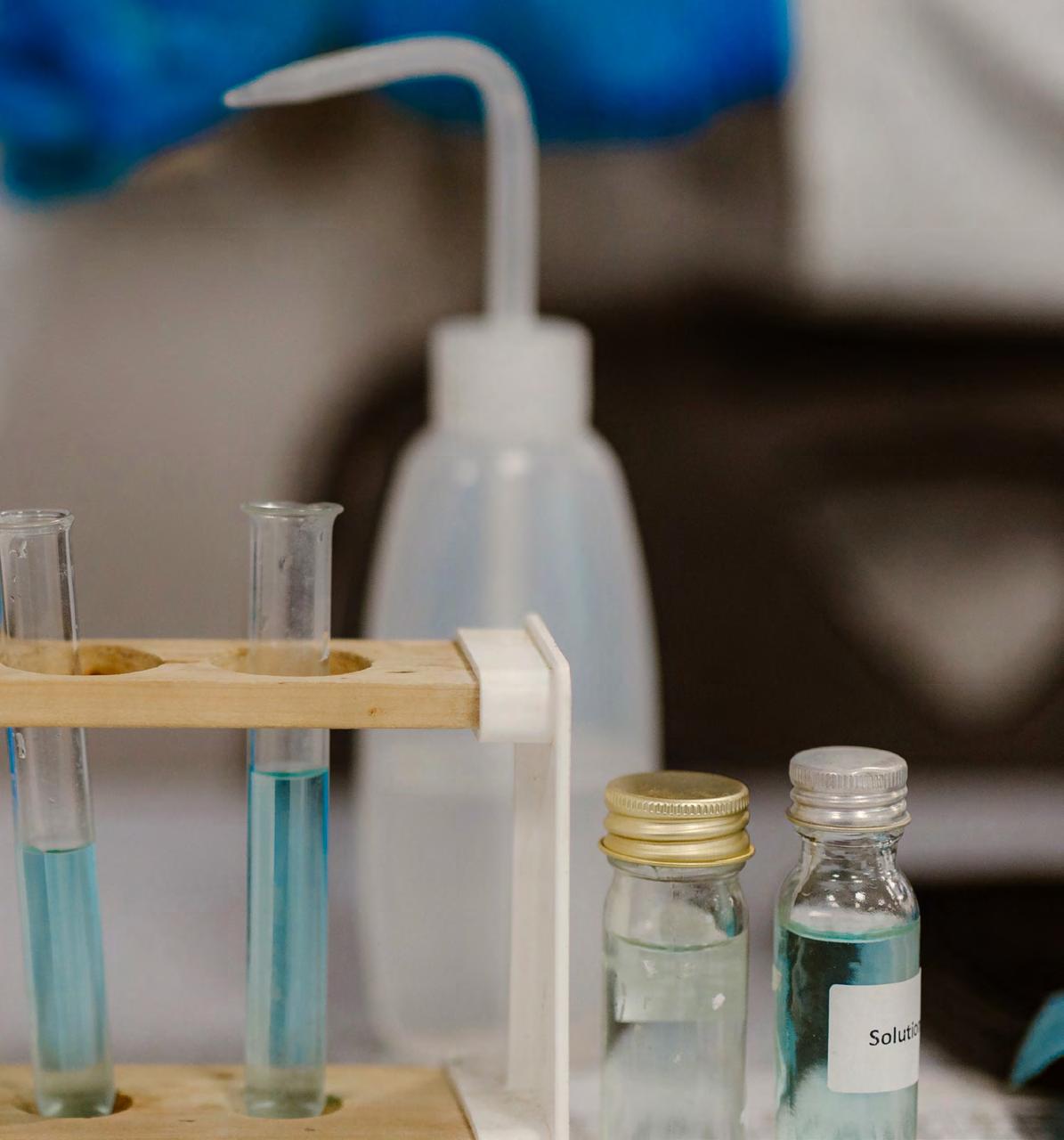
Triple Vocational A-Level
This course is designed to combine an in-depth study of biology, chemistry and physics allowing you to develop your skills and knowledge in all three disciplines. Most importantly, students will develop their skills in order to conduct practical experiments to a professional standard. This will prepare them perfectly for further study or employment within the industry. Units of study have been carefully chosen to combine biology, chemistry, physics, and maths.
Outline
A variety of units are studied throughout the course. For example, you may study physiology of human body systems, scientific investigation, microbiological techniques, practical chemistry, organic chemistry and medical physics, all of which have theoretical and practical aspects.
Entry Requirements
Students will need a minimum of three grade 4s and two grade 5s at GCSE including a grade 4 in GCSE English. The two grade 5s must come from a selection of Maths, Combined Science, Physics, Chemistry or Biology, with the rest of these subjects at grade 4. Progression from Level 2 Vocational Science will require a merit grade profile wil Level 2 passes in examined units and grade 4 in English and grade 5 in Maths. Additional Information: We will consider 1 Vocational qualification in place of a GCSE as long as a grade 4 is achieved in English.
Triple Vocational
Ever wanted to solve a crime using DNA and forensic profiling? The subject of forensic science continues to play a pivotal role in the investigation and solving of crimes. Forensic scientists use a range of sciences to answer questions related to legal situations, giving prosecutors the evidence to secure convictions.
Outline
Students will become confident in a wide range of biology, chemistry and physics ideas and experiments that can be applied to crime scene investigations.Additionally, students learn about the fundamentals of psychology and criminology to complement their main scientific unit of study. In the first year, students develop their science knowledge and skills, which are applied to the investigation-related units covered in their second year. There are also two optional units in psychology and criminology to introduce these important concepts related to forensic investigations. The course is graded by internal assessment in both years.
Entry Requirements
Students will need a minimum of 3 grade 4s and two grade 5s at GCSE including a grade 4 in GCSE English. The two grade 5s must come from a selection of Maths, Combined Science, Physics, Chemistry or Biology, with the rest of these subjects at grade 4. Progressions from Level 2 Vocational Science will require a merit grade profile with Level 2 passes in examined units and grade 4 in English and grade 5 in Maths. Additional Information: We will consider 1 Vocational qualification in place of a GCSE as long as a grade 4 is achieved in English.
Triple Vocational A-Level
Ever wanted to work for Emirates or Formula One? Careers in this subject range from automotive engineer, to Aerospace engineer to nuclear engineer. Depending on the industry, starting salaries can range from £27,000 to £44,000 per annum and can reach in excess of £110,000. For students who want to follow in the footsteps of billionaire-engineers Elon Musk, James Dyson and Henry Ford, this course is the beginning of their future career.
Outline
Students will enhance their knowledge of mathematics, physics, electronics and design plus have multiple opportunities to engage in practical experiments. They will also learn how to solve Complex problems, analyse information and yse logic in everyday situations.There are several mandatory units plus optional units consisting of topics in mathematics, physics, engineering principles, health and safety and project work. Students complete a major project in the second year involving planning, developing, producing and evaluating their own work.
Students will need a minimum of 5 grade 4s including at least two grade 5s from a selection of Maths, Combined Science, or Physics, with the rest of these subjects at grade 4. Additional Information: We will consider 1 Vocational qualification in place of a GCSE as long as a grade 4 is achieved in English.
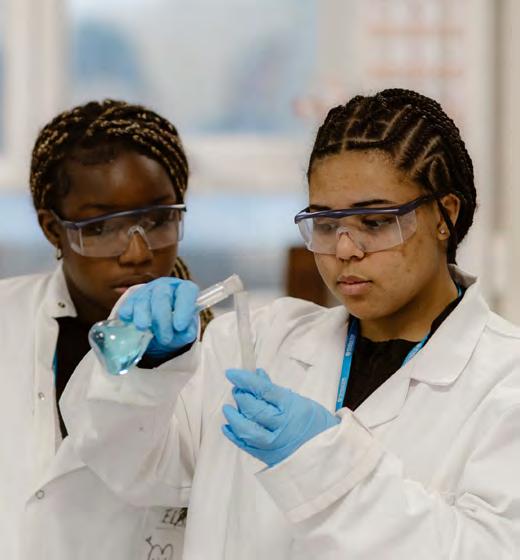
At Pendleton Sixth Form College we pride ourselves on the support that our dedicated staff offer our students.
At Pendleton Sixth Form College our commitment is to eliminate learning barriers, empowering you to reach your full potential and fostering independence. We recognise and are proud of the aspirations of our students. We also understand that the transition from school to college can be daunting, but not to worry, we have a range of support to help you achieve, thrive and be successful:
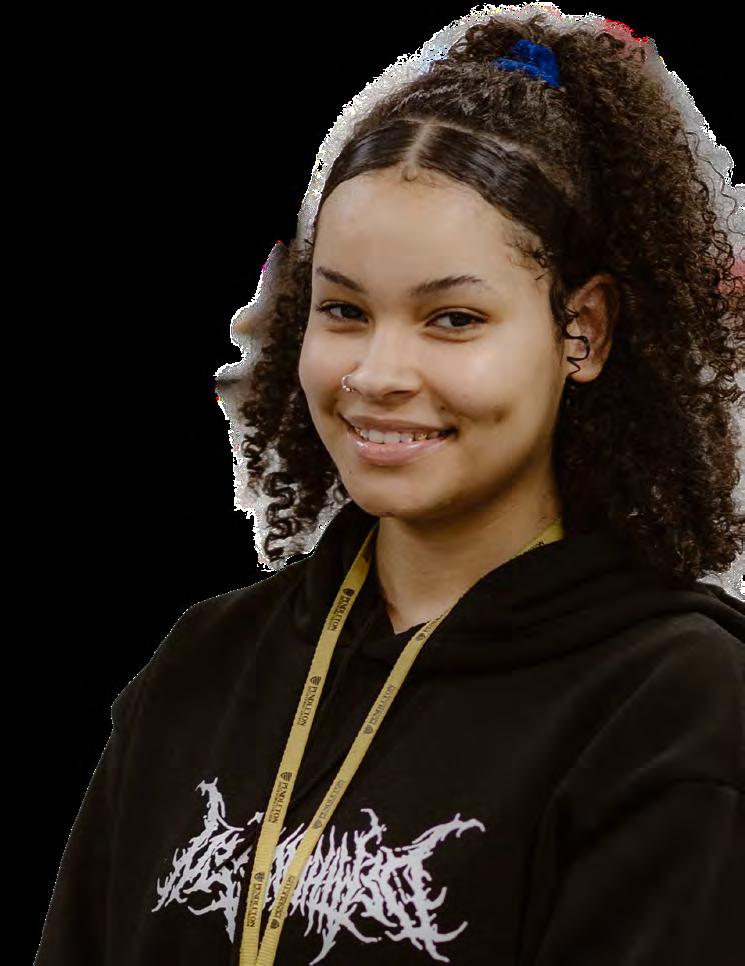
We understand that finances can be a major concern for many students, which is why we offer financial support to eligible students*.
Students with household income below £55,000 may be eligible for:
• Free College Meals
• Support with uniform / kits and trips (Up to the value of £375)
• Free College Printer Credit (£20 printer credit)
• Travel Support
• Free College Bus Travel
For more information visit our website: www.salfordcc.ac.uk or call us on 0161 631 5000.
*Subject to an assessment of individual need.
At Pendleton Sixth Form College, we believe that your health and wellbeing are essential to your success as a student.
We offer a range of support services to help you maintain a healthy and balanced lifestyle, including access to on-campus medical and mental health services. We also provide information and resources on healthy eating, exercise, stress management, and mindfulness to help you stay focused and energised throughout your studies. These resources can be accessed via students services or via the Wellbeing Portal on the college website.
At Pendleton Sixth Form College, we want to make sure that you have all the resources and tools you need to succeed in your studies. Our Pastoral Support Team are available to provide guidance and support during your college studies.
We are committed to ensuring that all of our students have equal access to education and support services. If you have a disability, medical condition, or specific learning difficulty, our Disability and Inclusion Team can provide support and accommodations to help you succeed in your studies.
This includes assistance with accessing learning materials, arranging exam adjustments, and providing advice on accessibility and assistive technology.


“
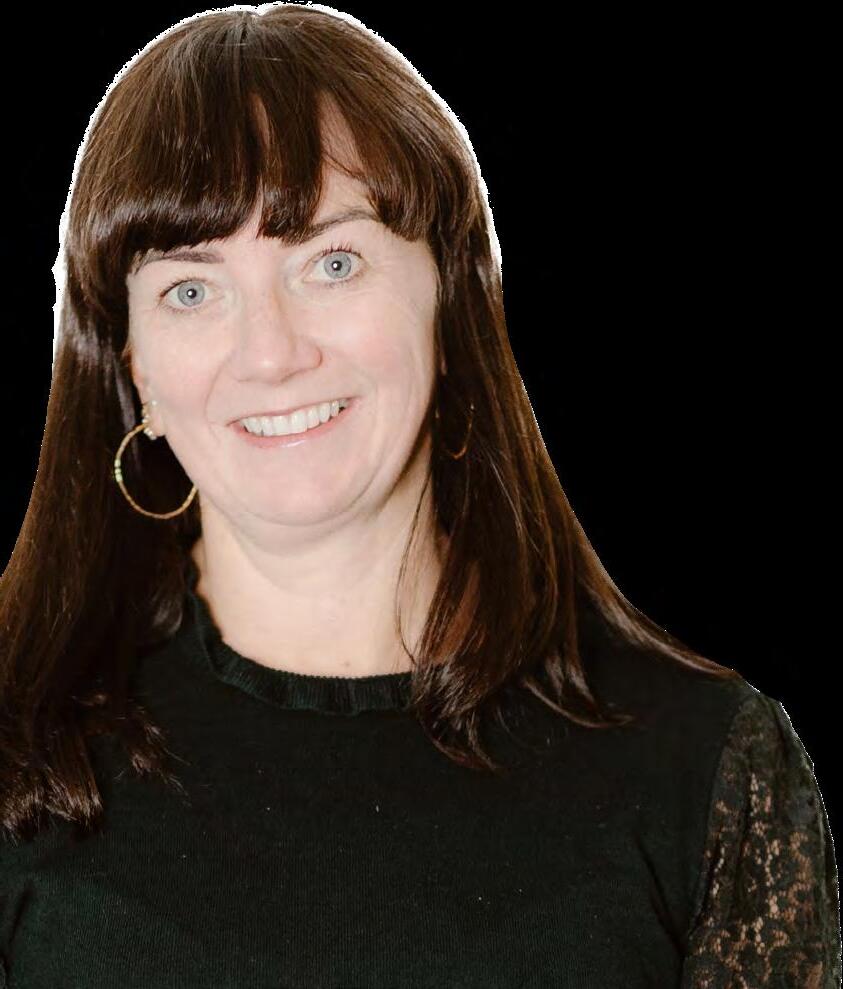
At Pendleton, we understand that every student’s journey is unique. Our pastoral care is tailored to help students overcome challenges, build resilience, and leave our college ready to embrace their future with confidence.”
SINEAD GOODWIN HEAD OF PASTORAL STUDIES
*Pay a £25 administration fee per term for your annual permit and then travel on the College buses all year for free. The College runs a number of dedicated bus routes from many areas in Greater Manchester including:
• Altrincham
• Astley
• Atherton
• Belle Vue
• Blackley
• Bolton
• Boothstown
• Broughton
• Bury
• Cadishead
• Cheetham Hill
• Chequerbent
• Chorlton
• Culcheth
• Davyhulme
• East Lancs
• Eccles
• Ellesmere Park
• Ellenbrook
• Farnworth
• Flixton
• Glazebrook
• Glazebury
• Irlam
• Irlam o’th Height
• Kearsley
• Leigh
• Levenshulme
• Little Hulton
• Lostock
• Monton
• Mosley Common
• Peels Green
• Pendlebury
• Plodder Lane
• Sale
• Stretford
• Swinton
• Trafford Park
• Tyldesley
• Urmston
• Walkden
• Westhoughton
• Whitefield
• Winton
• Worsley
Pendleton Sixth Form College at has good public transport links with a variety of options available for students.
For more detailed information on local transport, visit the Transport for Greater Manchester (TFGM) website: www.tfgm.com.
Alternatively, you can discuss transportation options with Student Services team at Pendleton Sixth Form College at on 0161 631 5005.
If you are planning on travelling to college via car, we have FREE onsite parking.
Our Pass is a membership scheme for young people who live in Greater Manchester, and supports both school leavers and care leavers. For more information visit: www.ourpass.co.uk.

DIDN’T GO TO COLLEGE AFTER LEAVING SCHOOL?
Salford City College Group offer an extensive range of vocational and academic courses for students aged 19 - 23, in addition to an outstanding student financial support package.
Discover more and apply now at www.salfordcc.ac.uk or call 0161 631 5050 for more information.
SCAN TO VIEW OUR EXCITING RANGE OF COURSES. AGED 19-23?
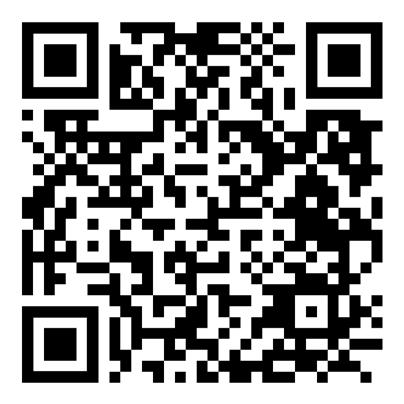
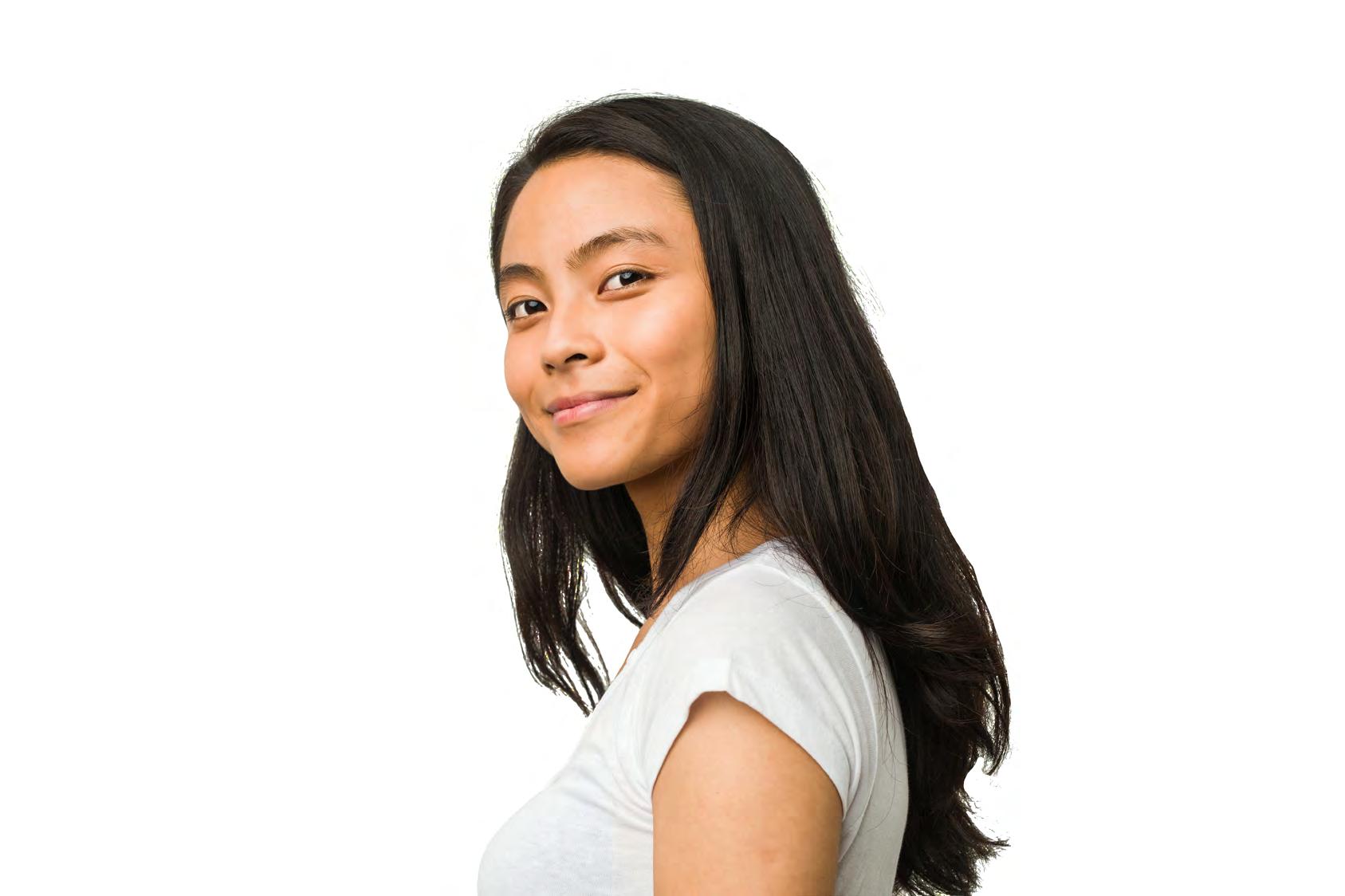
Level 2 courses require four grade 3s at GCSE. Visit our college website for specific course entry requirements.
Level 3 courses are required to have five grade 4s at GCSE, including English or Maths. Visit our college website for specific course entry requirements.
A-Level Courses require a combination of grade 5’s and 4’s at GCSE including English Language and Mathematics. Requirements may vary depending on the chosen course. For the latest information please visit our website on www.salfordcc.ac.uk or contact our admissions team on 0161 631 5050.
Come and experience Pendleton Sixth Form College for yourself. See the amazing facilities, meet current students and staff and learn more about the courses. See our website for details of our next open events.
Apply online at www.salfordcc.ac.uk.
Please ensure you keep your contact details up-to-date with us so we can send information out to you electronically.
Once you have applied, you will receive an acknowledgment to say we have received your application.
Applications need to be received before the 31st January.
If your application is successful you will be offered a conditional place on your chosen programme of study. You will then receive a email confirming your offer and details will follow on New Students’ Day and enrolment.
*The entry requirements in this guide are correct at the time of print. For the latest information visit our website at www.salfordcc.ac.uk
0161 631 5000
www.salfordcc.ac.uk
enquiries@salfordcc.ac.uk